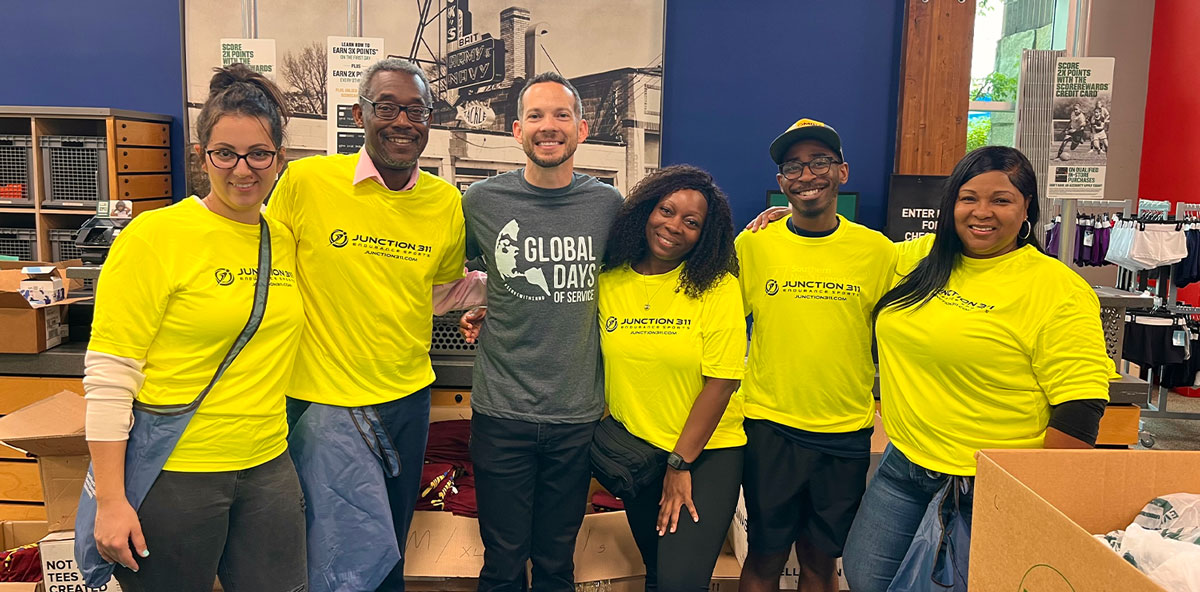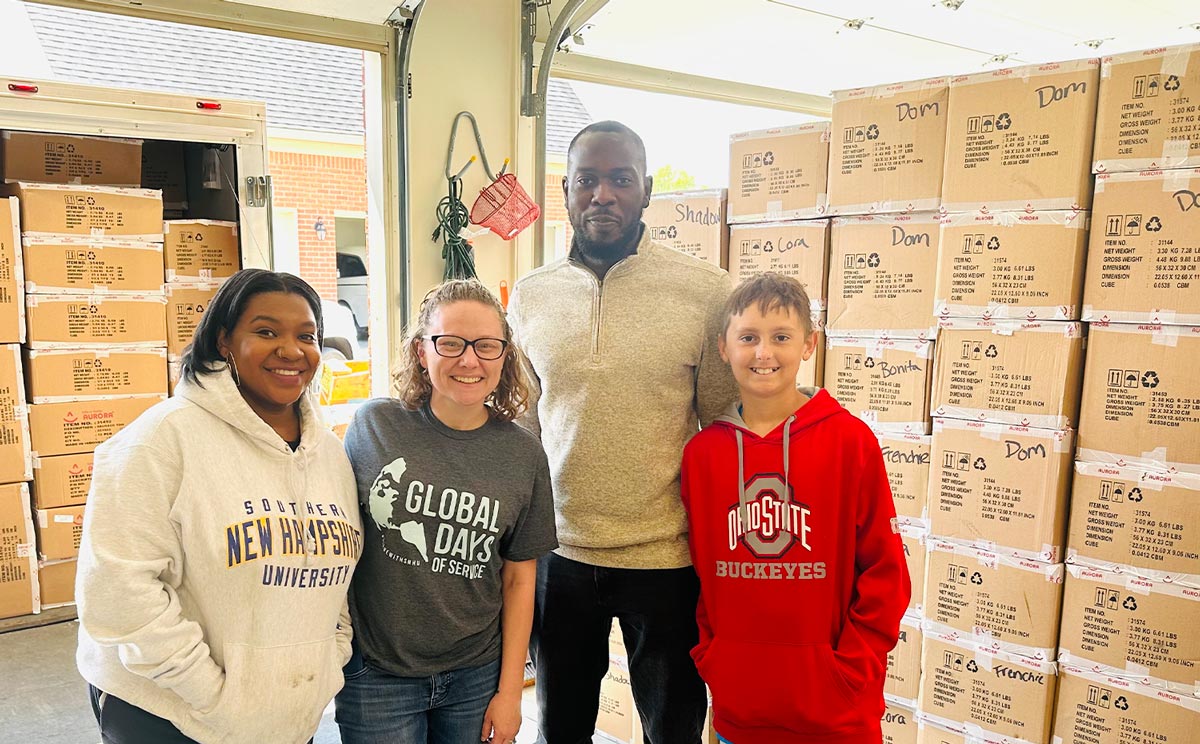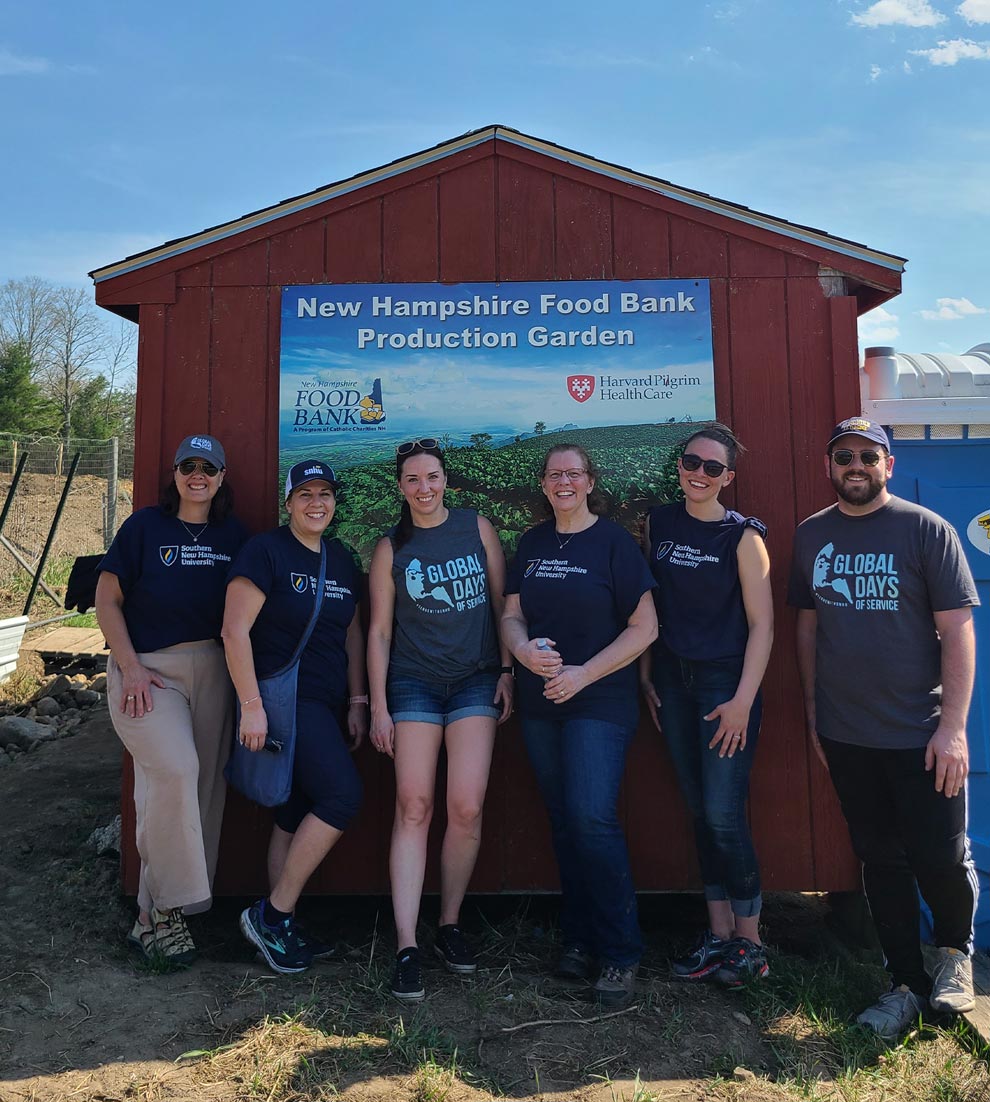SNHU Impact Magazine February 2024

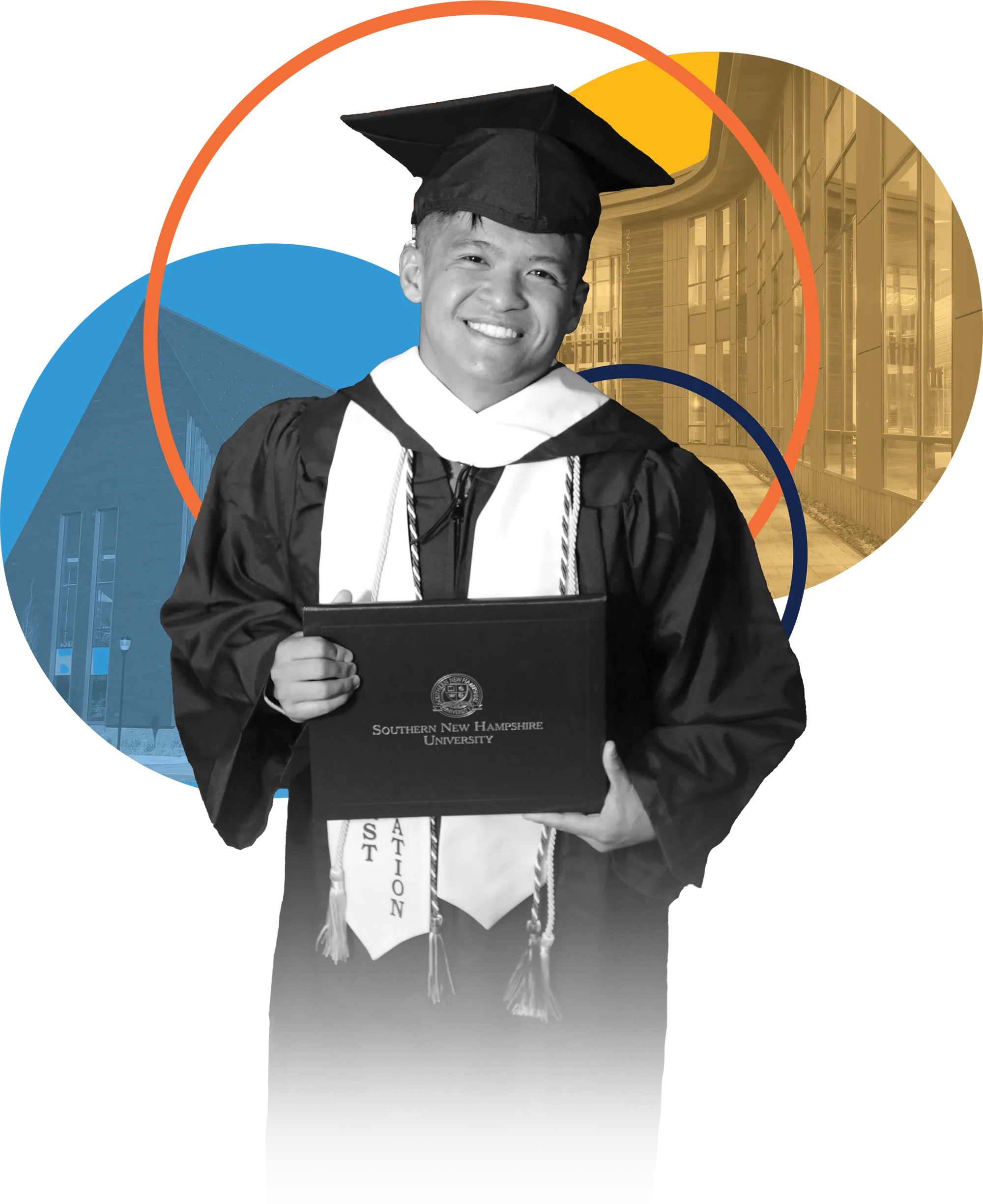
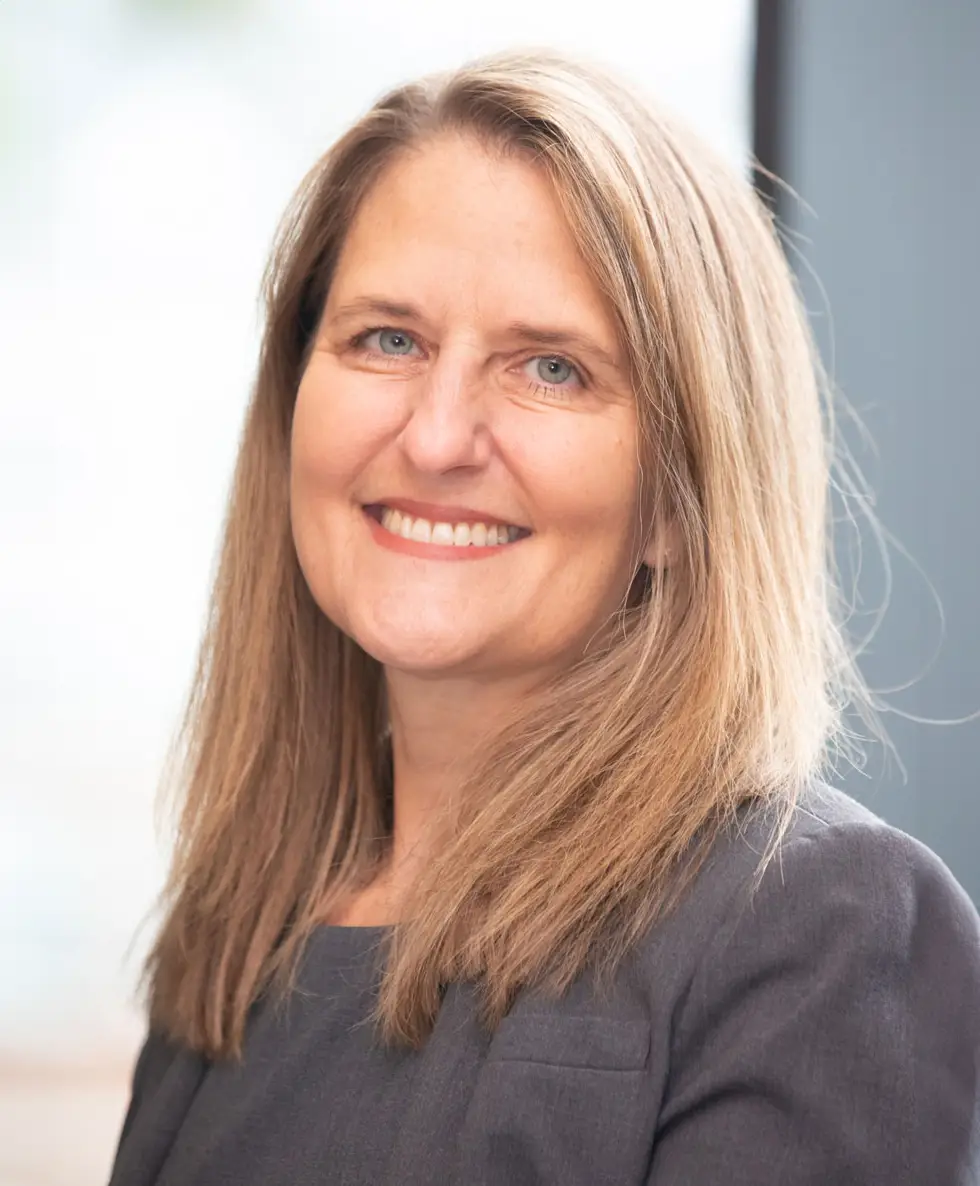
Letter From Gabi
Southern New Hampshire University has always prided itself on being more than just a place of learning; it is a lifelong community. SNHU transforms lives at scale, and our alumni community, more than 230,000 strong, is an integral part of this mission. Your dedication to our shared mission is a source of Penmen pride.
In the following pages, you will hear about how we are supporting our first-generation learners with our persistence teams and how we are exposing students to civic engagement through our Chandler Center. We will celebrate our alumni and honor SNHU President Paul LeBlanc’s legacy as our trailblazing leader.
Our commitment to building a community of engagement and giving is unwavering. We want to provide you with opportunities to stay connected, not only to the university but also to your fellow alumni. We want to foster a culture of giving, where your knowledge, time, and resources can be channeled into making SNHU’s work more impactful. Whether it is through volunteering as an interviewer during Mock Interviews, offering a student an internship opportunity, contributing to student scholarships, or organizing a volunteer service project for Global Days of Service with fellow alumni, your involvement is critical to our learners’ success.
Thank you for helping us to build a vibrant community of engagement and giving – a community that not only honors its past but actively shapes its future. Welcome to Impact, where your story is celebrated, and your voice is heard.
With gratitude,
Gabi Zolla
Vice President, Institutional Advancement
Contents
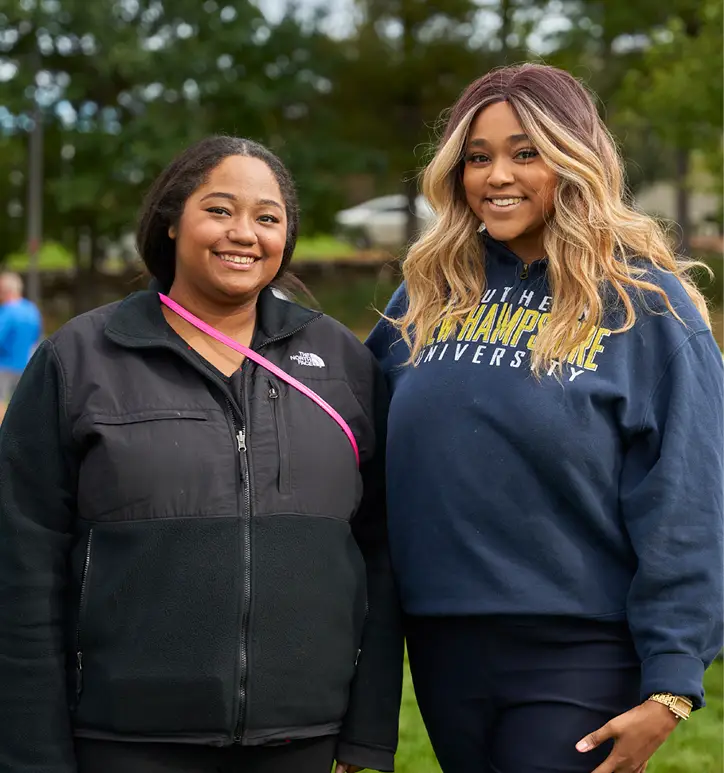
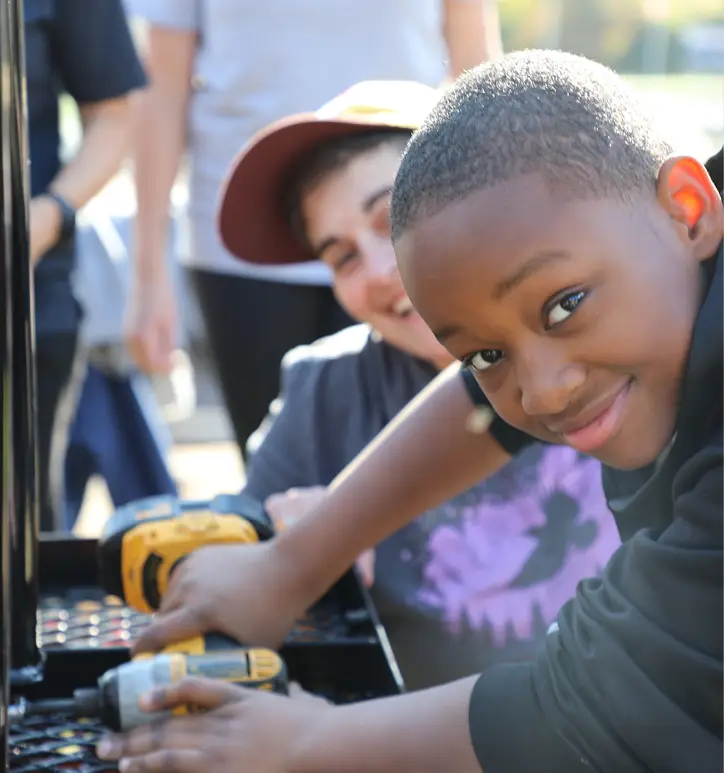
- Reflecting on 20 Years of Service to SNHU
- Supporting First-Generation Learners at SNHU
- Game Changer: Partnership with Connection Allows Esports Program to Excel
- SNHU Students Make a Seriously Fun Impact in Ireland
- SNHU’s Global Education Movement
- Celebrating the Newest SNHU Alumni!
- Student Voices: Echoes of Gratitude
- Linking Basic Needs to Persistence
- Connecting Community Through Outdoor Classrooms
- Unforgettable Legacies: Honoring SNHU’s Best
- In Photos: SNHU Campus
- Get Involved with Global Days of Service
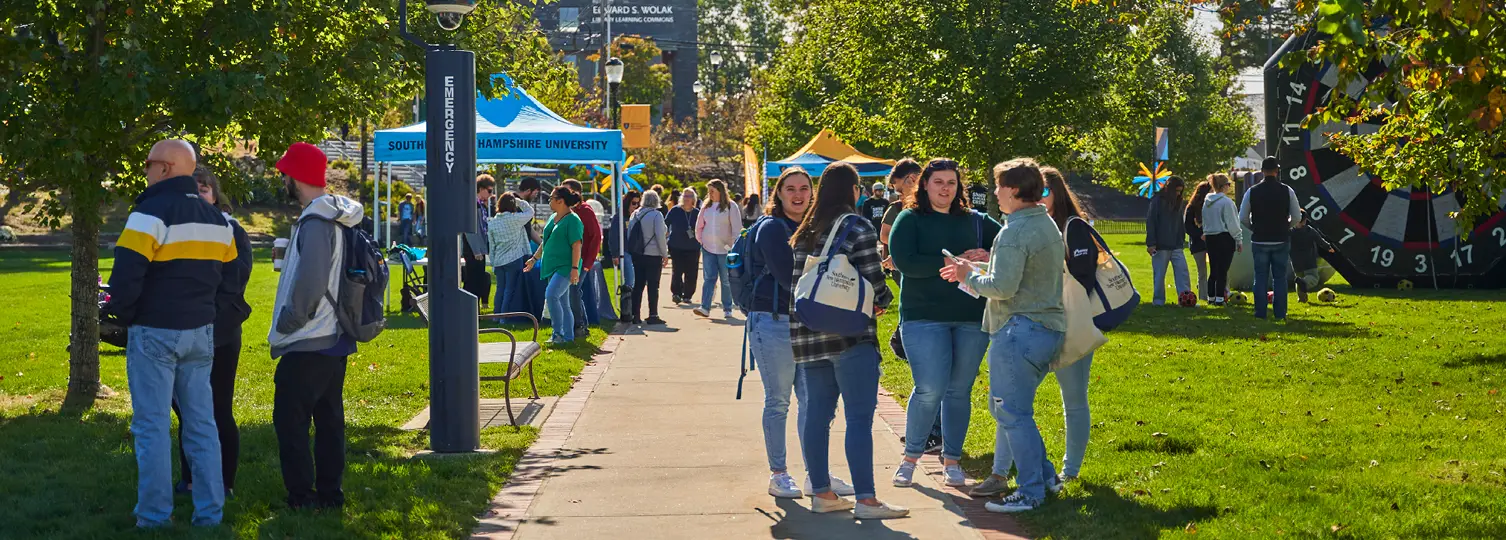
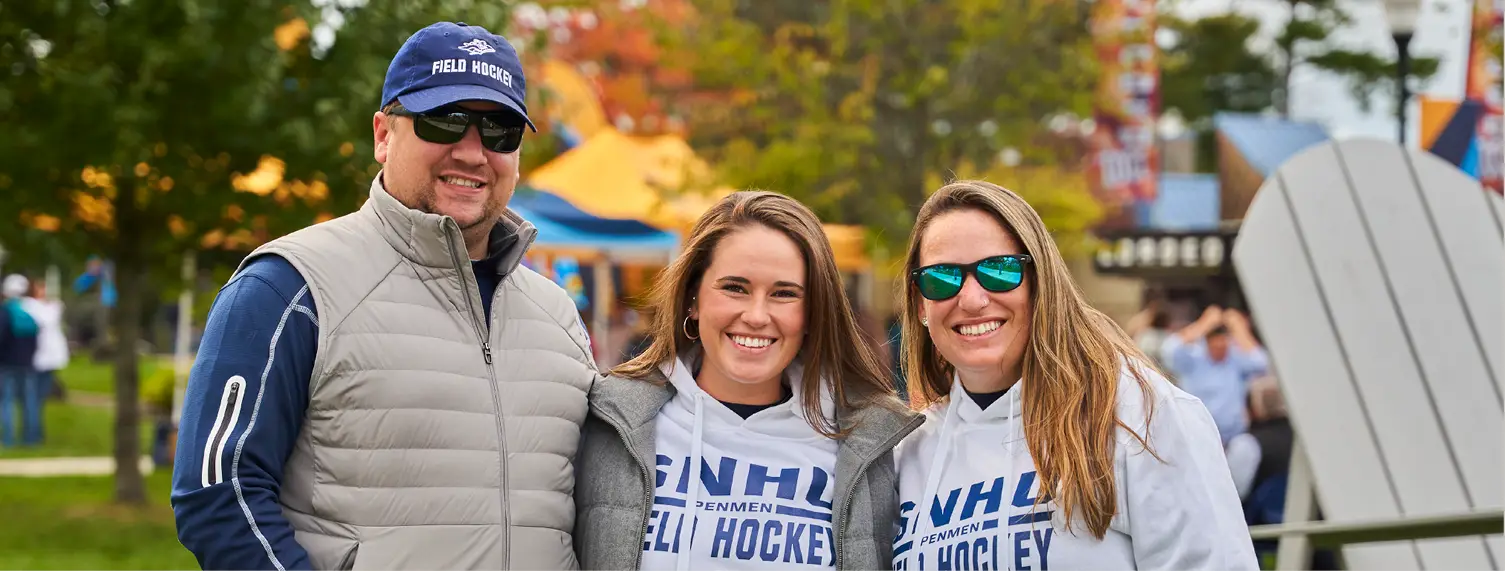
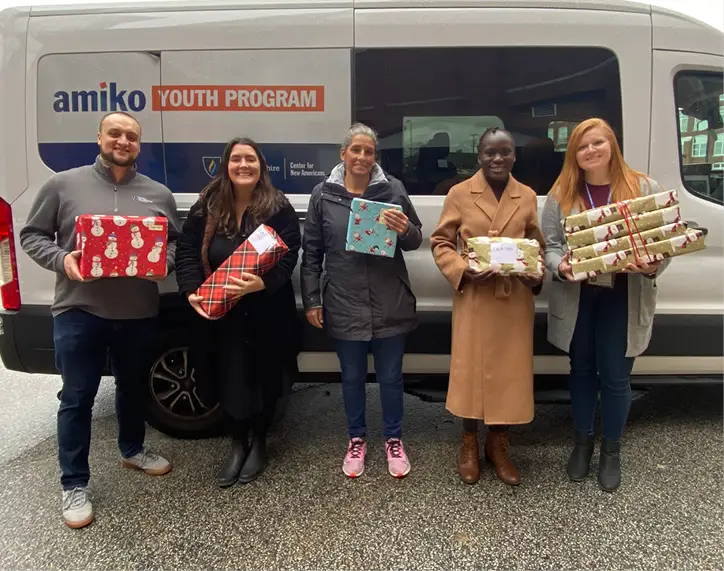
- President
Dr. Paul J. LeBlanc - Managing Editors
Audrey Bourque - Erin McGonagle ’15G
- Contributors
Paige Cooke - Zach Davidson ’17
- Melanie Drolet ’16
- Katie Dugan ’20G
- Olivia Gage, Class of 2024
- Lauren Keane ’18G
- Courtney Lawson ’16 ’17MBA
- Siobhan Lopez
- Lauren Maynard
- Sophia Peguri ’23
- Lisa St. Hilaire
- Jen Salafia ’11 ’13G
- Rachael Sears
- Shayla Walsh ’08 ’10G
- Graphic Design
Krystal Siemon - Printing
RC Brayshaw - Digital Magazine
Vertiqul
publications.snhu.edu - Impact is published by the Office of Institutional Advancement
Gabi Zolla, Vice President,
Institutional Advancement -
Changes of address may be sent to alumni@snhu.edu or to:
Office of Institutional Advancement
Southern New Hampshire University
2500 North River Road
Manchester, NH 03106-1045The mission of Institutional Advancement is to advance the University through engagement. We encourage generosity and build community so that our learners and alumni can succeed. - To learn more, visit alumni.snhu.edu.
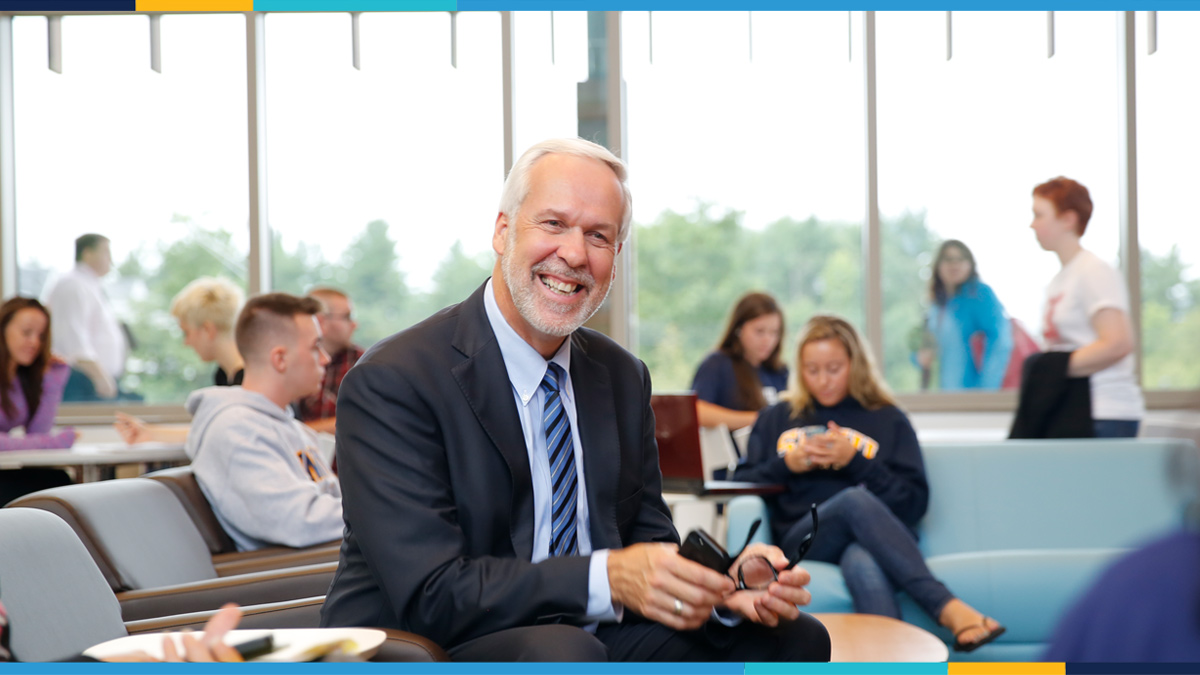
Reflecting on 20 Years of Service to SNHU
When I came to SNHU in 2003, I found a home. In this small New Hampshire campus, I found a rock-solid commitment to mission, a dedication to students, and a hunger to do more and be more. At the time, I never envisioned we’d be the university we are today, but I knew that at this university I would find purpose and joy.
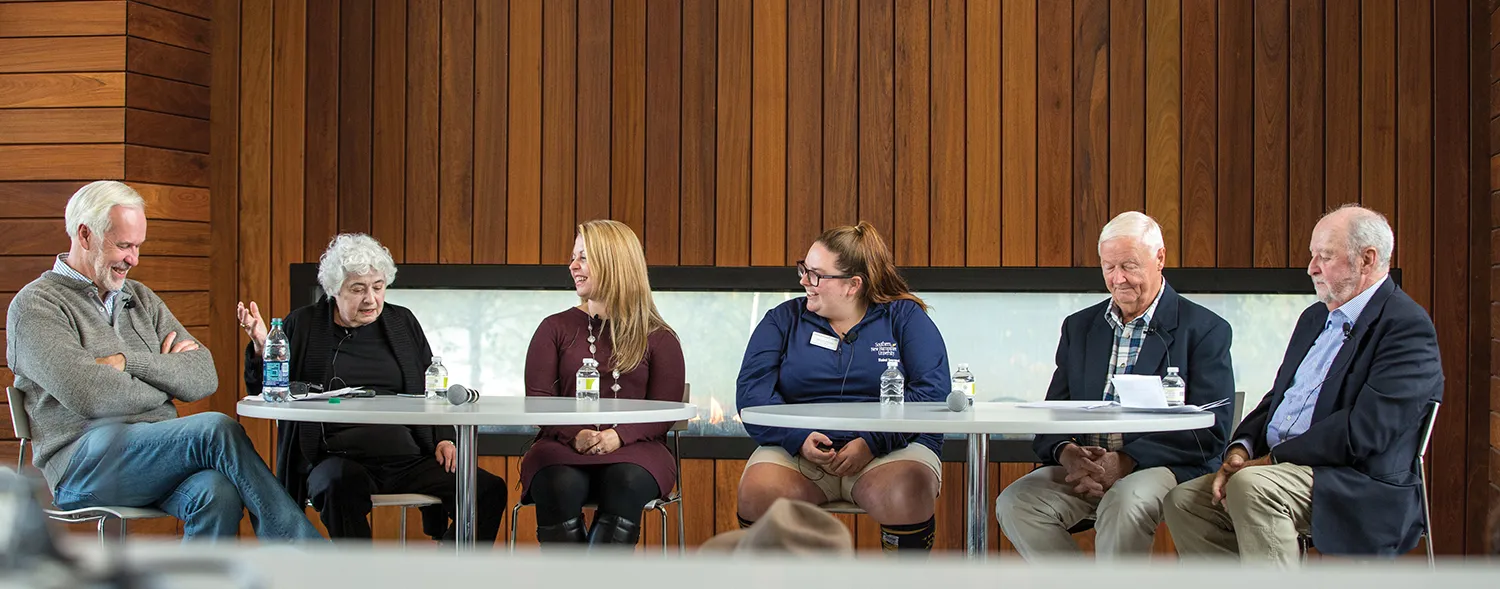
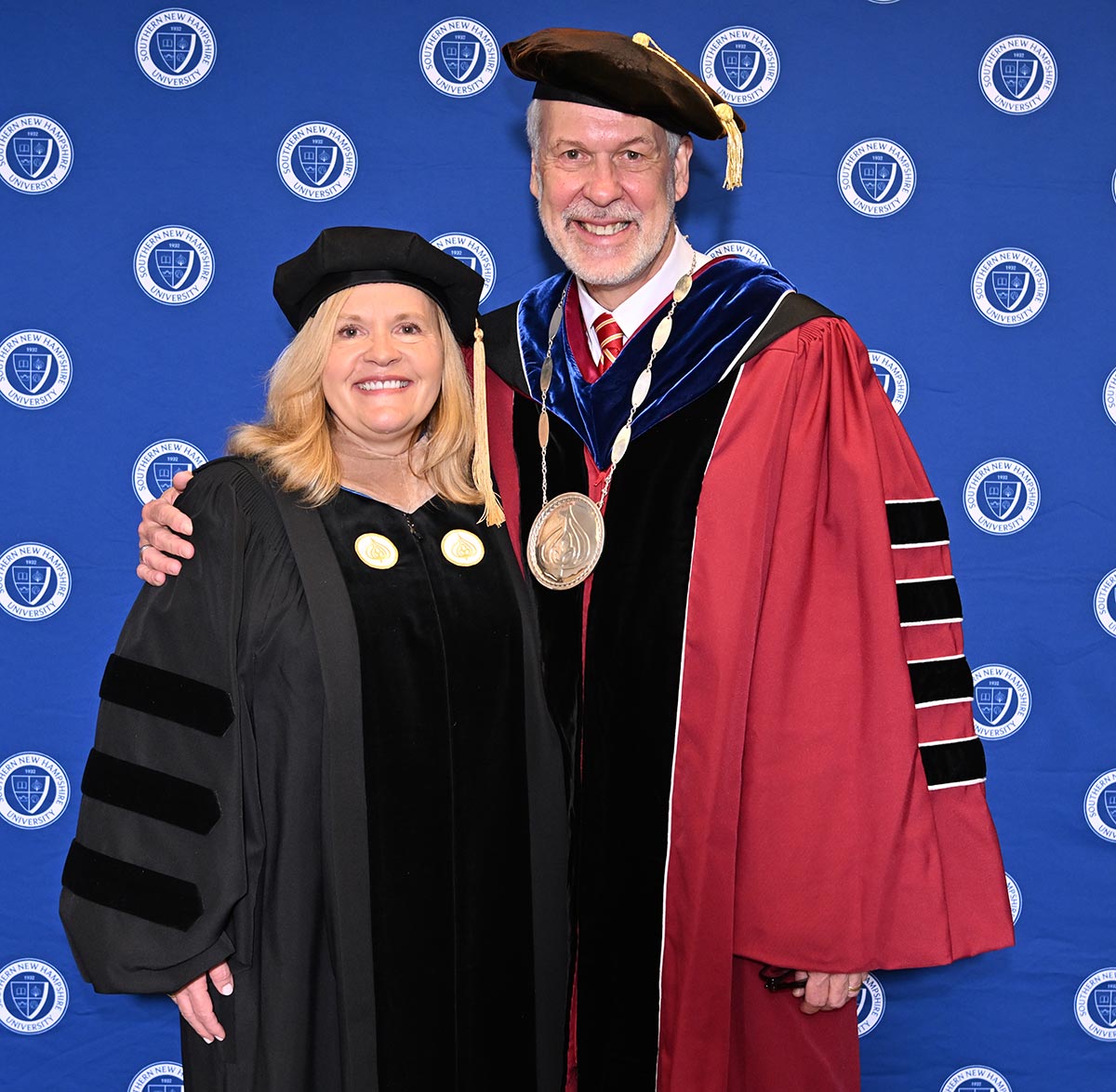
During my time at SNHU, we have navigated a global pandemic, achieved unprecedented enrollment figures, ensured financial stability, and assembled a formidable team to carry this work forward. I am so excited for Lisa Marsh Ryerson, and for the entire community, as she steps into the role of President. Lisa and I (pictured above) have been professional colleagues for years, throughout her leadership roles at Wells College and the AARP Foundation. As a former SNHU Board member and our current University Provost, she knows our people, our systems, and our students, and she is a passionate educator to her core. There is so much to look forward to for SNHU, and I can’t wait to see how our students and alumni continue to make their impact.
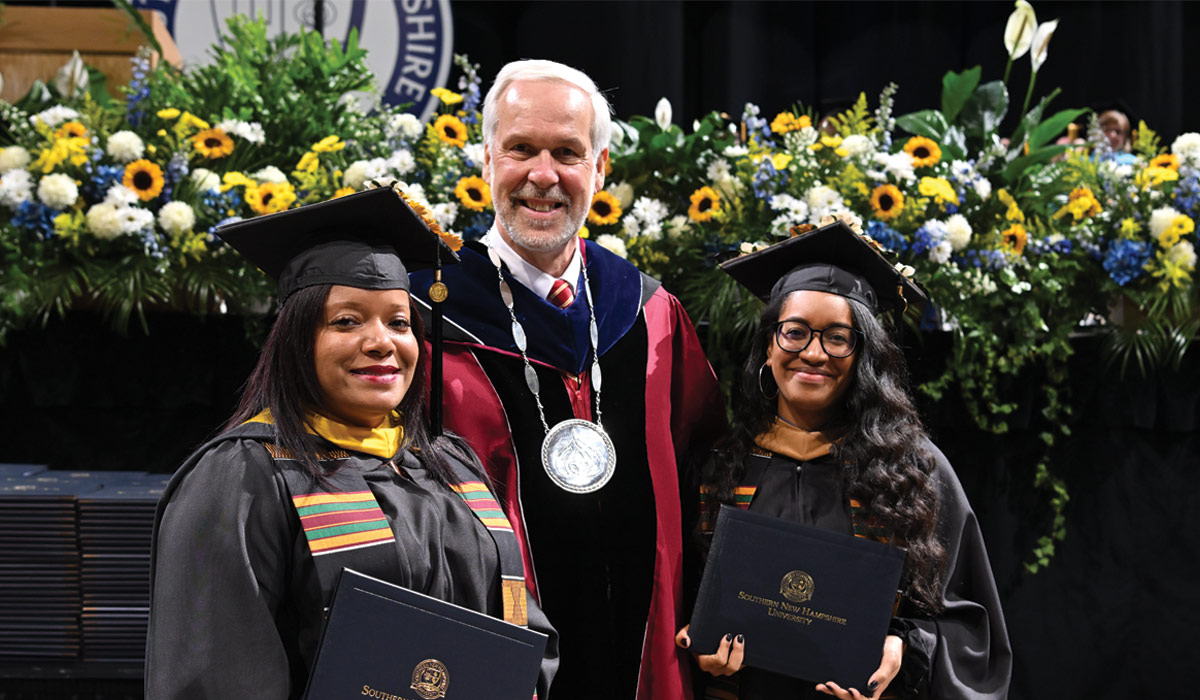
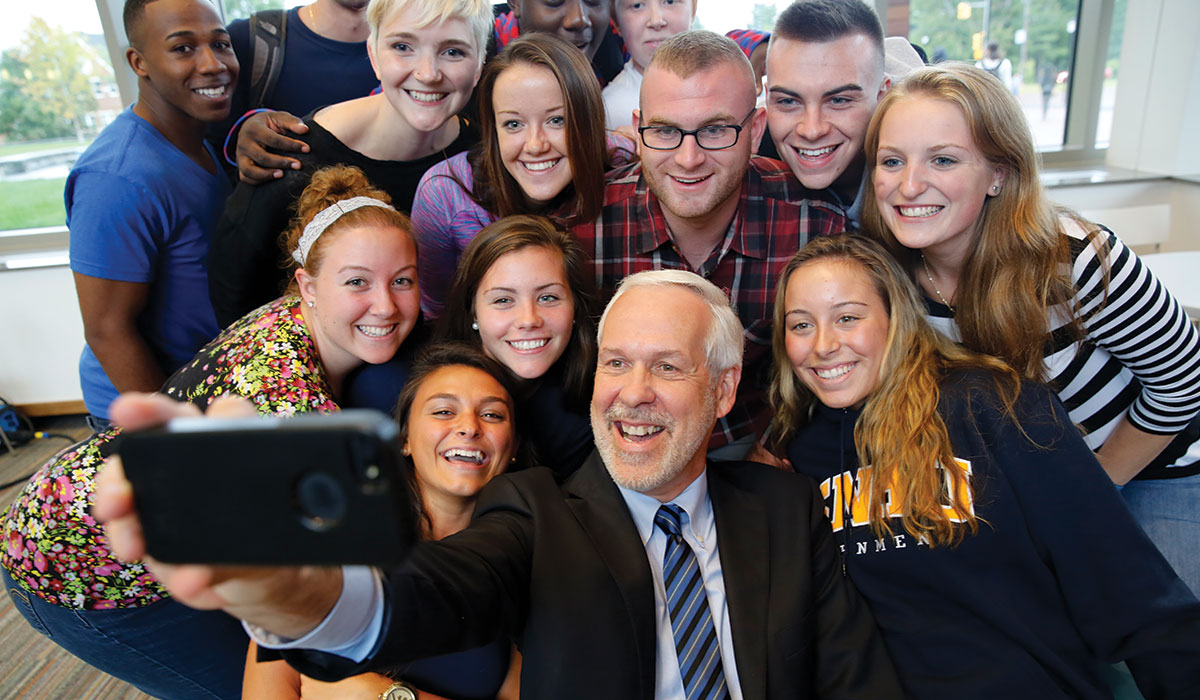
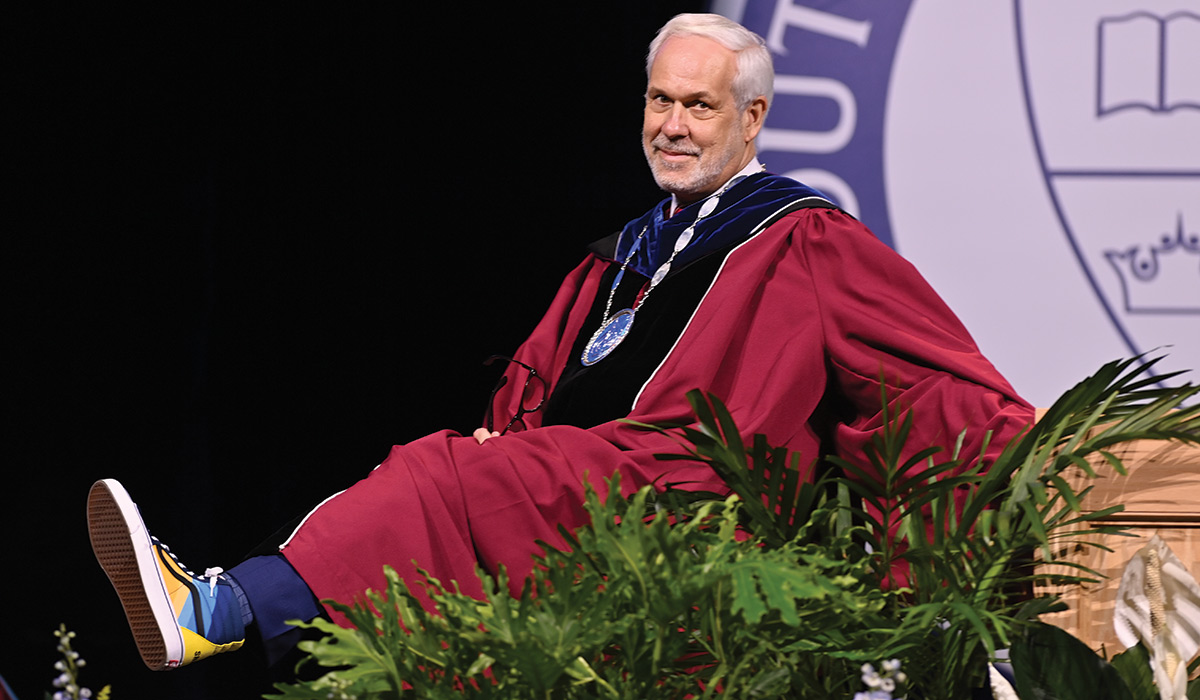
Paul

Supporting First-Generation Learners at SNHU
Many first-generation learners don’t know what to expect when coming to college. Joie Gibson ’15 ’18G – an SNHU alumna, staff member, and faculty member – recalls her experience as a student: “I couldn’t ask my parents to help me with my homework because my dad dropped out of school in seventh grade.” As Helena Iaquinta – user experience researcher, DEI, and one of the First-Gen Workgroup representatives – states, “There often feels like there is a rule book for college that not all students receive. So the more we can illuminate confusing acronyms, terms that don’t make sense, and be explicit about how to get help with assignments, that is really important to make sure first-generation students do not fall behind.”
First Scholars Network
“As SNHU continues its commitment to access and social mobility, earning the First Scholars Network designation is a testament of our dedication to providing the support and resources that are so vital to the success of our first-generation learners,” said Dr. James Winfield, SNHU’s associate dean of first-year experience, general education, and retention strategies.
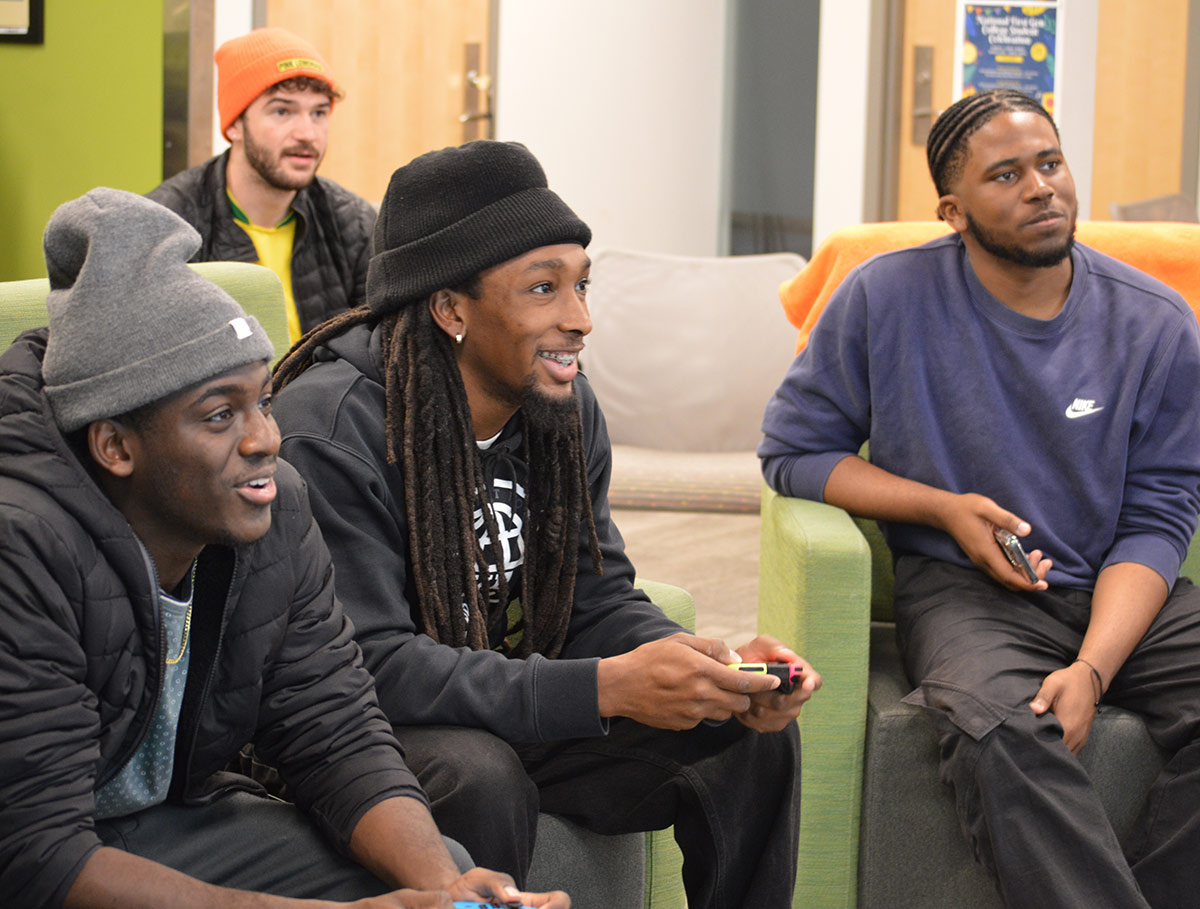
During the first year of membership in the First Scholars Network, member schools commit to building an understanding of first-generation student success by participating in a series of workshops, networking, and professional development opportunities, as well as participation in a peer community.
“Being named as a First Scholars Network member is an exciting opportunity for these institutions to join a dedicated community of professionals prepared to share evidence-based practices and resources, troubleshoot challenges, generate knowledge, and continue to advance the success of first-generation students across the country,” Dr. Kevin Kruger, president and CEO of NASPA, said in a release.
The designation as a First Scholars Network member is the first of four phases culminating in achieving the status of First Student Champion Campus.
Building a Community of First-Generation Learners
“I hope this continues growing,” said Dr. Lynn Zlotkowski, senior director of campus student retention and success. “It’s important for SNHU to host events for first-gen students because we have a high percentage of first-gen students on our campus, and they need to see how proud we are of them. We want them to make connections with other first-gen students and with the faculty and staff who are here to cheer them on and support them.”
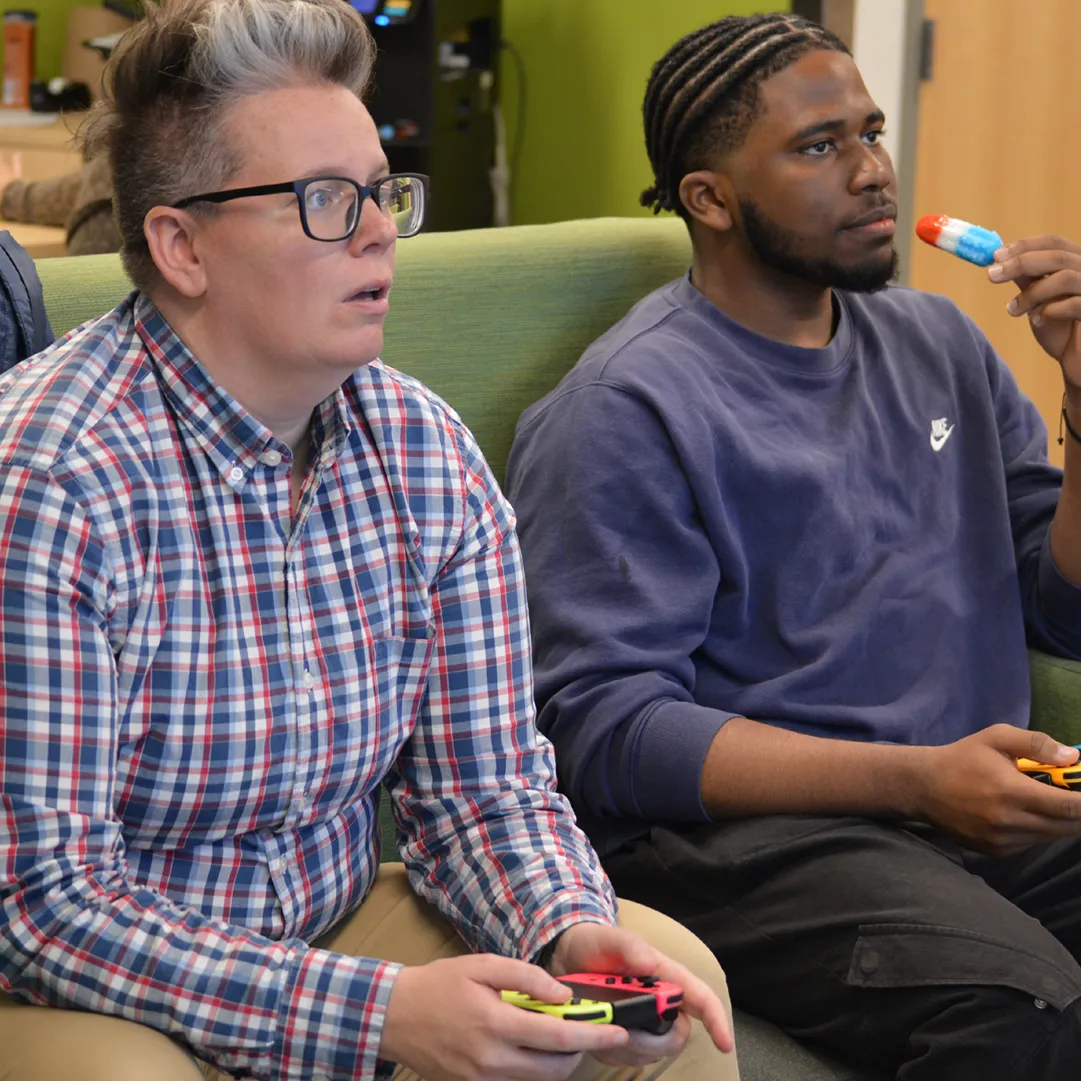
In the online space, the First-Generation Learning Resource Group hosted a virtual panel featuring SNHU employees who were the first in their families to graduate from college: Academic Advisor Joie Gibson ’15 ’18G, Career Services Advisor David Munn, and Academic Advising Team Lead Hannah Hodes.
The panelists shared their journeys as first-generation college students – how they overcame challenges, what they learned along the way, and what they are doing now with their degrees. There were more than 130 students, faculty, and staff in attendance.
Panelist Hannah Hodes agreed and said that faculty and staff can play a critical role in supporting first-gen learners. “It’s essential for faculty and staff to continue (or start) getting involved and support first-generation students because they need the support. First-gen students are often left to navigate the maze of higher education on their own, and they simply don’t know what they don’t know. If we have a way of making these students more visible to student-facing departments, and we couple that with providing proper resources for supporting first-gen students, then we can provide real, proactive, in-time support without having to wait for the student to ask.”
Hodes said she encourages students to connect with their advisors and get involved. “Students can join the First-Generation Learning Resource Group on SNHUconnect, our virtual student union, and mention their first-gen status in their discussion posts each term. Branch out and make connections. We mean it when we say there is an army of people supporting them and cheering them on!
GAME CHANGER
By Katie Dugan ’20G
“When students think about getting jobs in esports, they are primarily thinking, ‘I can play video games professionally,’ ” said Tim Fowler, director of esports.
With this partnership, students can get insight into “a variety of different jobs that they could have, whether it be in sales for Connection, esports programs, communications or technology jobs,” said Fowler.
In the future, Fowler hopes to work with Connection to host career events for students to understand what their industry is like, better preparing them for career advancement after graduation.
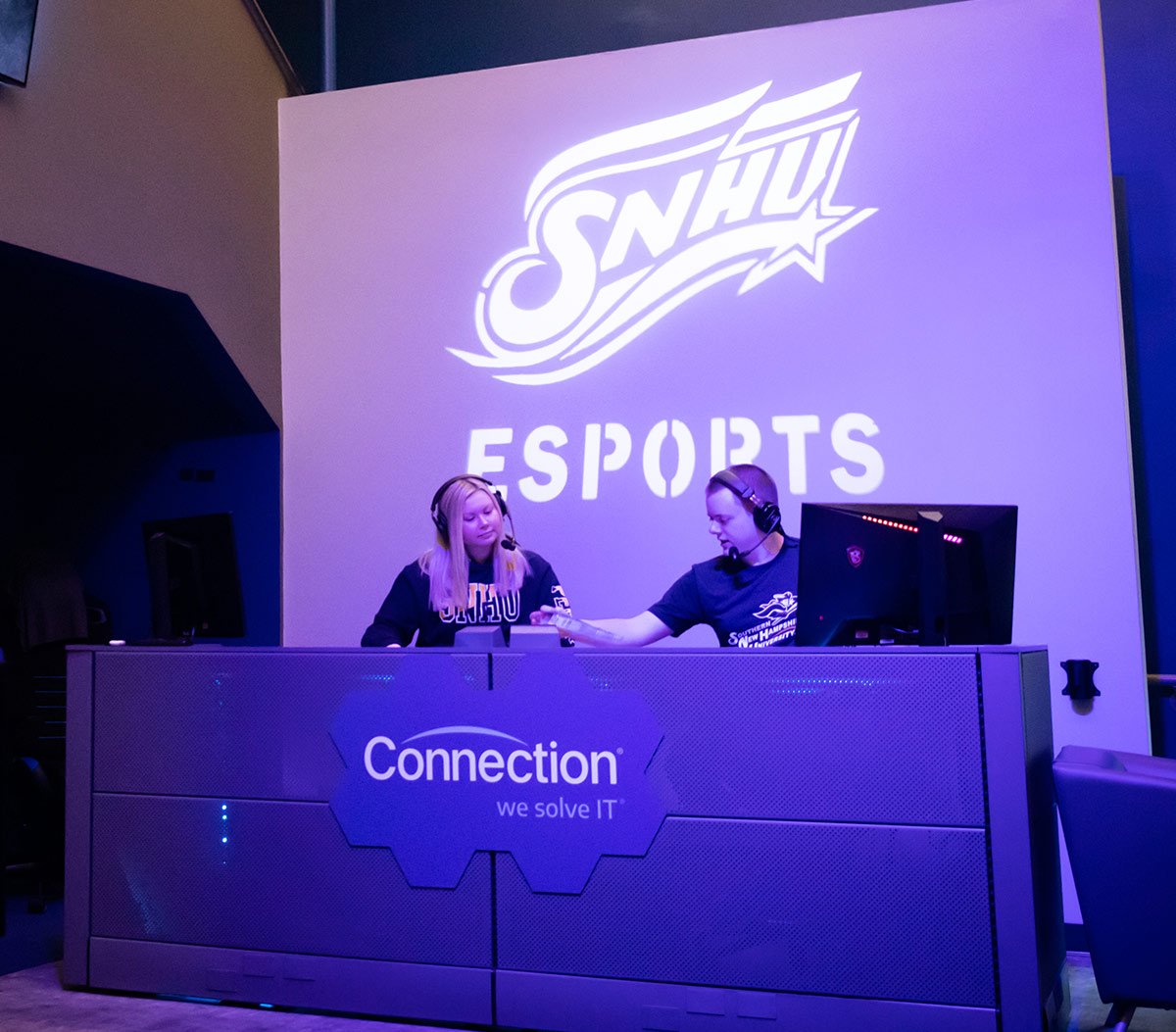
An added bonus to the partnership with Connection requires that students on the content team learn how to work with a brand.
“The students are really the ones running the show from that perspective. They make sure that the Connection logo is on everything and that it’s being featured appropriately. It gives them a better understanding of how marketing works and how producing content that requires sponsorship works because we’re integrating that,” said Fowler.
SNHU and Connection have had a long-standing relationship. Roughly 25% of Connection’s workforce consists of SNHU alumni, including Tim McGrath, the CEO. Prior to the esports sponsorship, Connection has worked with the SNHU Professional Sales Program. Fowler says that Connection expressed interest in esports, wanting to understand the sport better, and support his advocacy for bringing esports to communities outside of SNHU.
“Connection has been really interested in getting high school esports off the ground. They’ve been working with me to try to put together packages for New Hampshire high schools,” said Fowler.
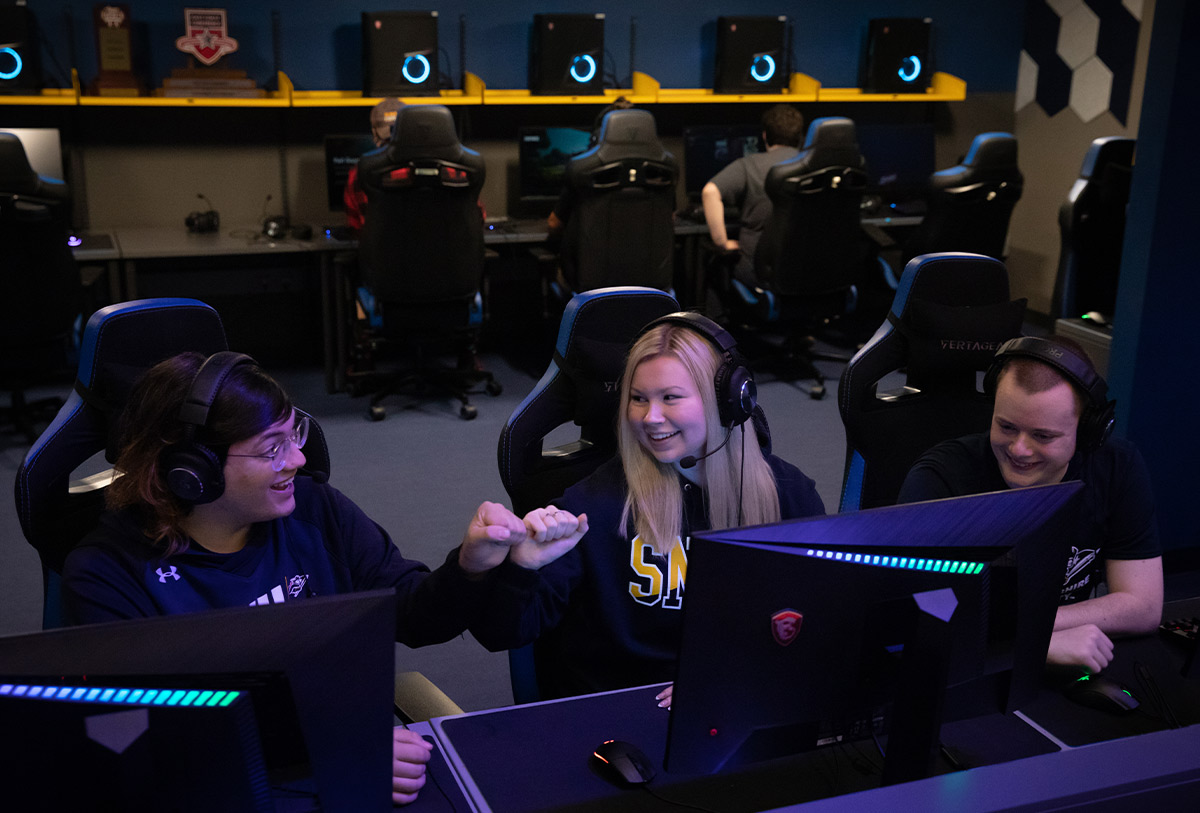
“[Connection] has had a huge presence within the SNHU community in various aspects,” said Ed Ithier, director of development for the Office of Institutional Advancement. “The relationship with Connection has provided students not only with an experiential learning aspect, but also teaches them how to work as a team.”
SNHU Students Make a Seriously Fun Impact in Ireland

Cara is the Irish word for “friend” and refers to volunteers, camp counselors, activity leaders, and any other support staff that ensures camps run smoothly. Ten students served as caras filling in the role of camp counselors. Each cara was assigned a cottage (the same as what Americans call a cabin at a summer camp) and spent the following seven days with a group of ten campers and fellow caras.
Upon arrival, students were given a day to acclimate to the time change and explore Dublin. The following day, students were bussed from Dublin to the camp for a full day of training. After approximately twelve hours of training, caras moved into their cottages and anxiously awaited the campers’ arrival the following day.
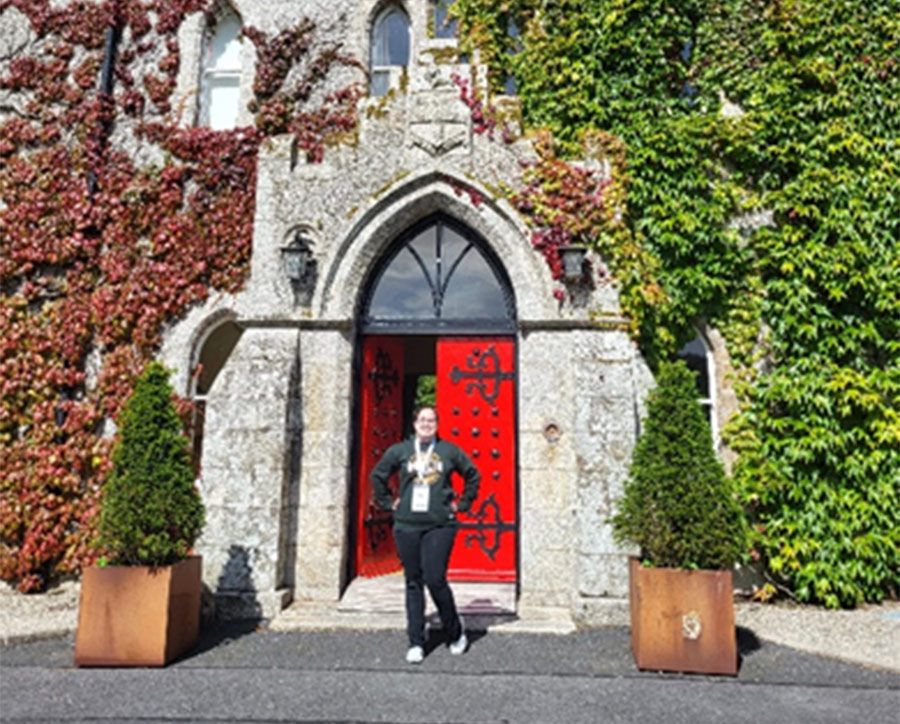
One of the most special moments of camp occurred each night before bed. Every night the camp had a “Cottage Chat.” Cottage Chat was when all the campers were in bed and a reflection question was asked. The reflection question is typically focused on lighter topics early in the week and slowly shifts toward deeper questions that allow campers to process the emotions associated with their illnesses. These questions often left the campers feeling closer and the caras shocked by their emotional maturity and ability to handle their situations with grace. Most caras find themselves carrying around the answers from campers for years to come and take the lessons they learned from campers to heart.
The final evening of camp there was a celebration of the week with everyone gathered in the theater to watch a slideshow, hand out awards, and express thanks to everyone who made camp possible. After all campers are picked up, caras have a debrief session. At the debrief session, caras were commended for their hard work over the past week and were given the space to process emotions and say their goodbyes.
Barretstown allows SNHU students to gain valuable tools for their future academic years, careers and life in general. All students who participated in this year’s trip are thankful for their experience, the generosity of Laurie ’89MBA and Clarke Chandler, the Chandler Center, and SNHU for the opportunity to attend Barretstown.
The Chandlers remain committed to supporting the important work of The Chandler Center and the students it serves. Thanks to their dedication, The Chandler Center has been able to introduce students to new engagement and learning experiences, such as the trip to Barretstown.
After the trip, students had the opportunity to write letters of thanks to Laurie and Clarke. Brooke Rowell wrote in her letter, “I am forever grateful for this trip, and I will spend a lifetime remembering the girls, remembering the memories, and holding a special place in my heart for people like you who add positivity and wholesomeness to a complicated life. From the bottom of my heart, I want to thank you. Not only for the monetary value of this trip, but especially for the change I see in the world and in the people in it after this trip, and for the difference I got to make in someone else’s life. Thank you for being you and thank you for sharing the most magical gift of a lifetime with me.”
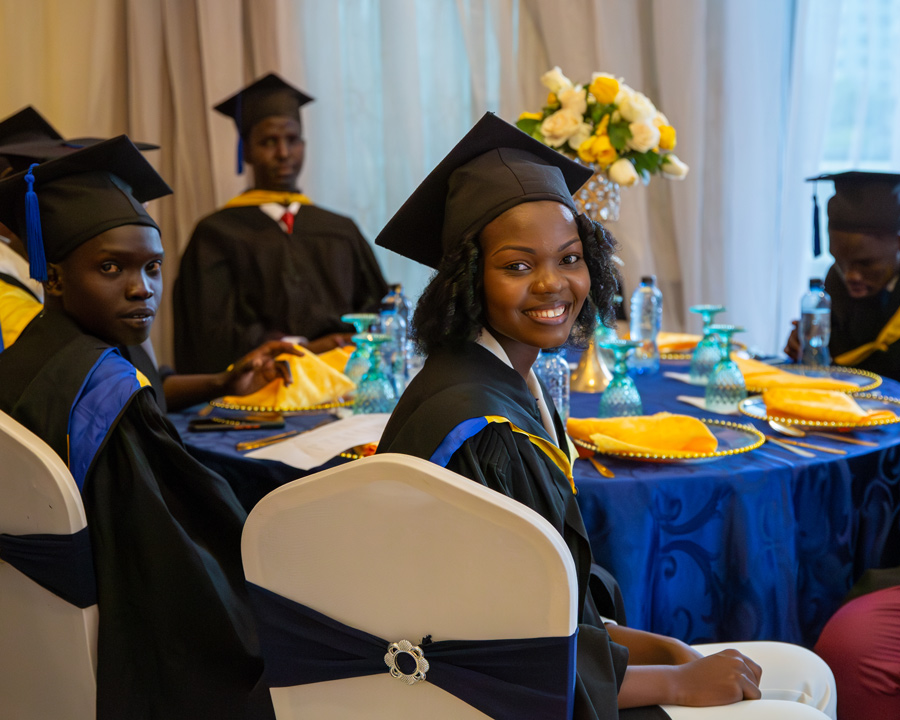
SNHU’S Global Education Movement
At Southern New Hampshire University, our commitment to transforming lives has never stopped at the boundaries of our campus in New Hampshire – we work worldwide to provide access to education to learners. There is no better example of this mission than SNHU’s Global Education Movement (SNHU GEM).
SNHU GEM launched in 2017 as the first higher education program to offer refugees the opportunity to earn high-quality, U.S.–accredited degrees and gain real-world skills that open pathways to employment and self-determination.
Globally, 110 million people have been forcibly displaced from their homes by war, climate change, and other conflicts. It’s a troubling reality that many displaced people face barriers that prevent them from learning or working in their host communities. Creating pathways to education and employment can be transformative not only for our graduates’ lives but also the lives of their families and communities as well.
SNHU GEM has grown so much since its earliest days – our program has expanded from one site to span six countries and 13 locations. We have served more than 3,500 students in Malawi, Kenya, Rwanda, Lebanon, Turkey, and South Africa.
Partnership is at the heart of SNHU GEM’s growth and success. At each site, we work with in-country organizations that provide vital wraparound support services to help students succeed. Whether they choose to continue their education, start their own businesses, or find career opportunities across the globe, SNHU GEM graduates have the tools they need to embark on the next steps of their journeys.
In November, President Paul LeBlanc and I had the opportunity to visit our SNHU GEM sites in Rwanda and Kenya, where we work alongside our on-the-ground partners – Kepler in Rwanda and the Jesuit Refugee Service (JRS) in Kenya. During our visit, we met with faculty, staff, and students to learn more about how we can better support the unique needs of displaced learners. We made powerful visits to the Kibera slum in Nairobi and the Kigali Genocide Memorial, where we heard stories about the many challenges that these communities face. And we had the immense pleasure of celebrating graduation with the SNHU GEM Class of 2023.
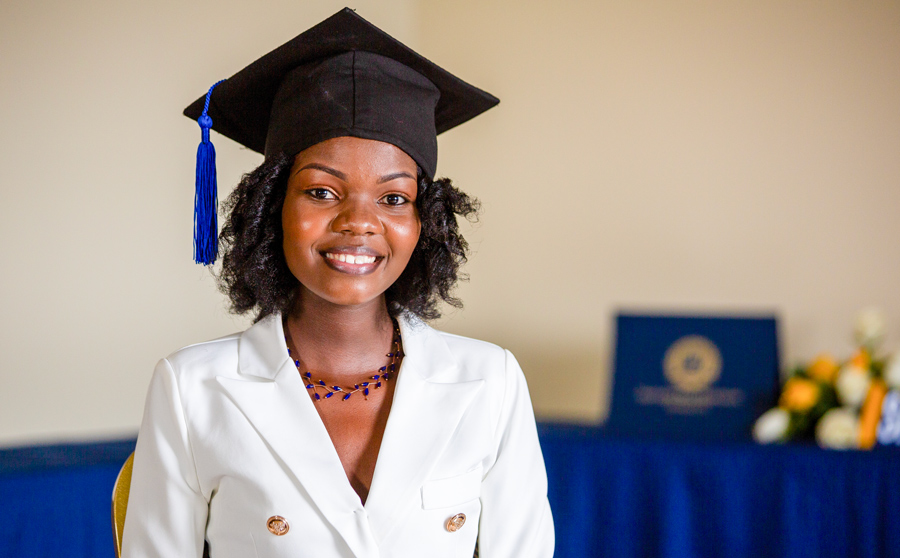
We often say that no one does Commencement better than SNHU, but watching refugee learners from SNHU GEM accept their diplomas is always a special joy. This fall, SNHU GEM and our in-country partners gathered in Kigali, Rwanda, and Nairobi, Kenya, to witness 163 displaced learners receive their diplomas and celebrate their accomplishments with their classmates, friends, and families.
During our trip, I connected with many refugee learners who were generous enough to share their personal stories with me. Two of the alumni I spoke with, Alexia Umugwaneza ’23 and Mupenzi Niyomugabo ’23, described journeys that I believe embody the dedication, talent, and skill of our graduating class.
Alexia Umugwaneza, a Class of 2023 alumna and refugee from the Democratic Republic of the Congo (DRC), graduated with an associate degree in General Studies and is currently working towards her bachelor’s degree in Communications with a concentration in Business from SNHU GEM and JRS Kenya.
Like many SNHU GEM students, Alexia is the first person in her family to graduate with a university degree. Her father was passionate about Alexia continuing her education, but her parents did not have the funds to support her university education. Alexia was thrilled to receive a scholarship to attend SNHU GEM and JRS Kenya.
Prior to graduation, Alexia accepted a job as a program assistant for a non-government organization (NGO) in South Sudan. She attributes her success in the role to her degree and the practical experience she gained in the SNHU GEM program.
Alexia’s goal is to become an advocate for displaced people – “a voice for the voiceless” who reminds international decision makers of an important truth: “that refugees are also human beings; that refugees can have access to education, and equal rights.”
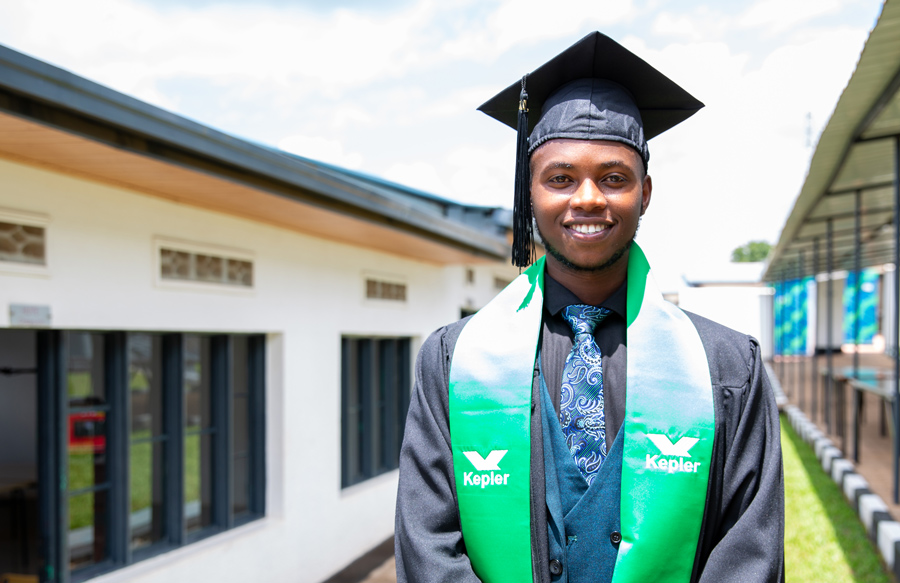
Mupenzi Niyomugabo, a Class of 2023 alumnus and refugee from the DRC, accepted his bachelor’s degree in Management with a concentration in Logistics and Operations at the graduation ceremony in Kigali, Rwanda.
When he discovered that he had been accepted into the program, Mupenzi seized the opportunity to pursue his education, and leveraged his education to pursue new employment opportunities. Today, he works as a Business Associate at Inkomoko, a Kigali-based organization that provides training, advisory, and low-cost financing to entrepreneurs. He credits his education at SNHU GEM and Kepler for his quick advancement at the organization.
According to Mupenzi, a first-generation graduate and father of two: “Graduation is a big milestone for me. It provides hope for the future, that I can achieve more things. I hope to show my two boys so much with my degree – including that hard work pays off, and nothing is impossible.”
Our work at SNHU GEM is not done, and 2024 promises to bring more exciting developments. Recently, SNHU GEM opened a new site in the city of Gaziantep, Turkey. Together with our longtime partner Multi Aid Programs (MAPS), we will provide refugee students in Turkey with access to fully accredited degrees and wraparound academic and livelihood supports that pave the way for brighter, more secure lives.
In the new year, SNHU GEM will continue to increase its impact and reach, and remain committed to supporting refugees as they become leaders in their own communities and drive conversations about refugee rights around the globe.
We will also continue to increase the number of students we serve – at the UNHCR Global Refugee Forum in December, SNHU GEM made a commitment to serve 5,000 refugee learners in higher education by 2030.
We do this work because we know that while talent abounds, opportunity does not. Education has the power to level the playing field, and we are committed to providing refugee learners worldwide with the support and opportunities they need to pursue brighter, more secure lives.
CELEBRATING THE NEWEST SNHU ALUMNI!
Read on to meet some of our newest graduates, and check out some of our favorite moments on video at alumni.snhu.edu/classof2023.
CELEBRATING THE NEWEST SNHU ALUMNI!
Read on to meet some of our newest graduates, and check out some of our favorite moments on video at alumni.snhu.edu/classof2023.
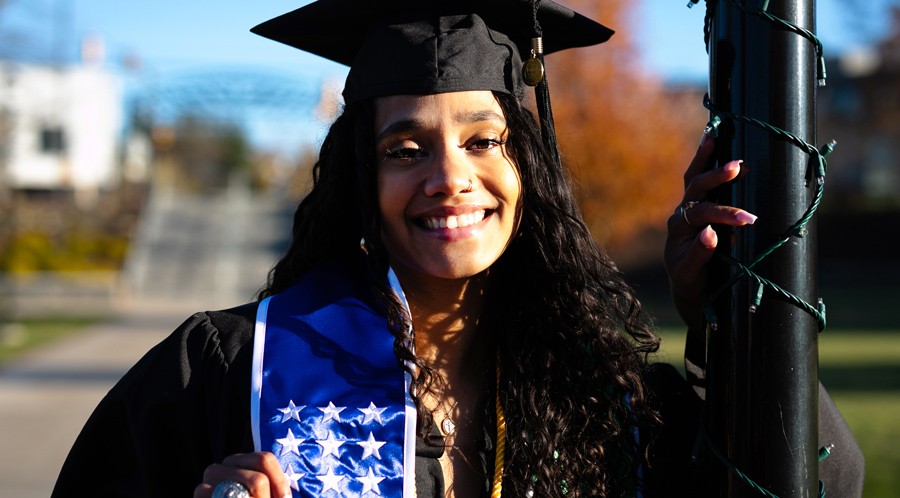
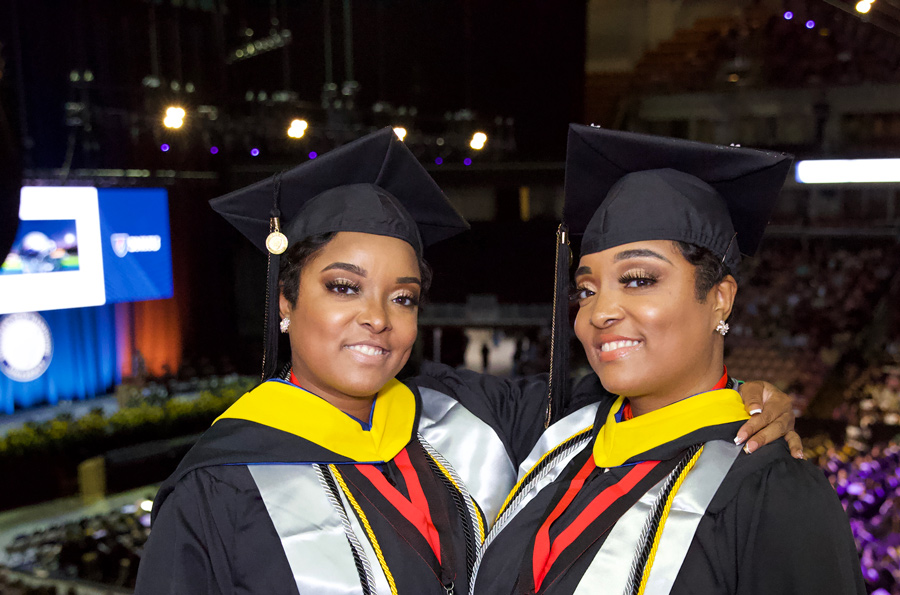
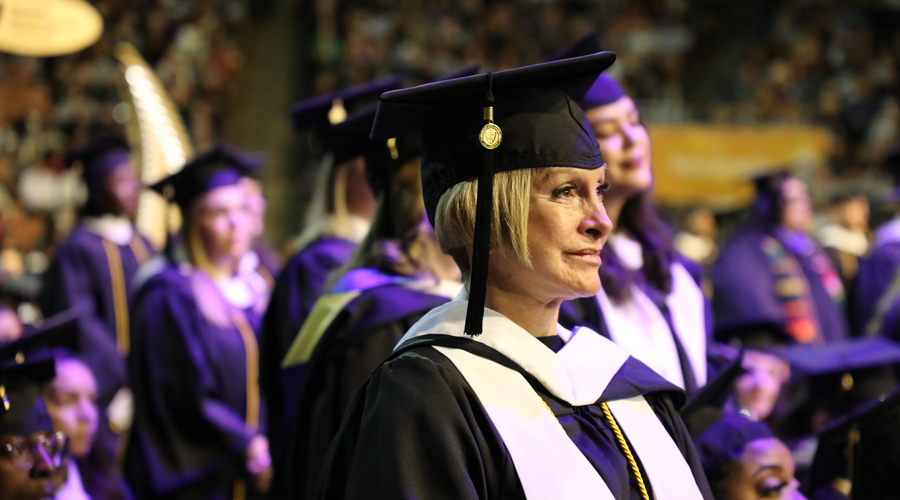
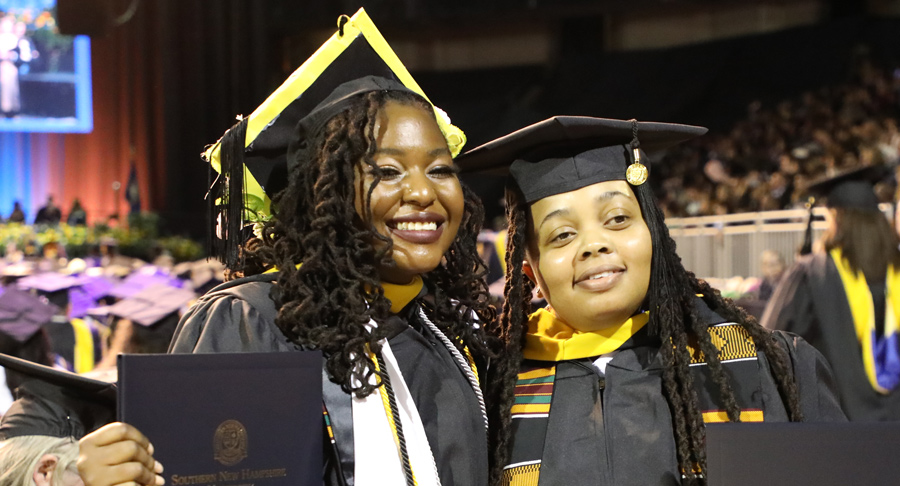
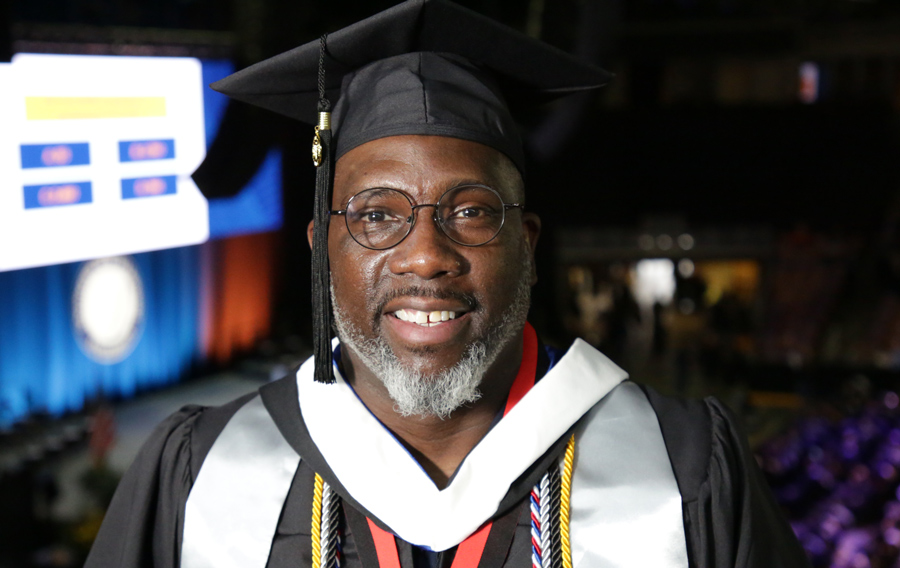
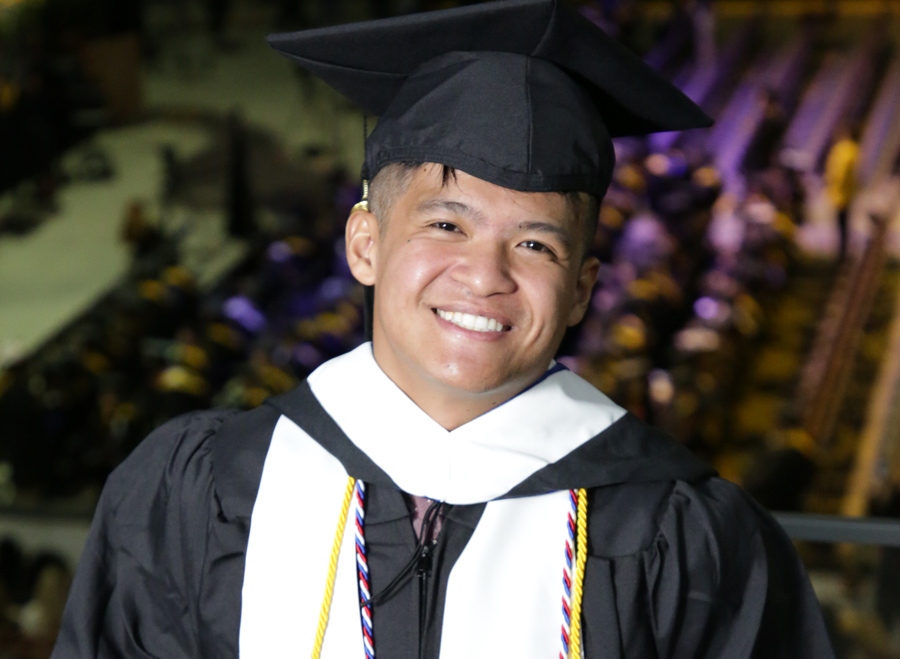
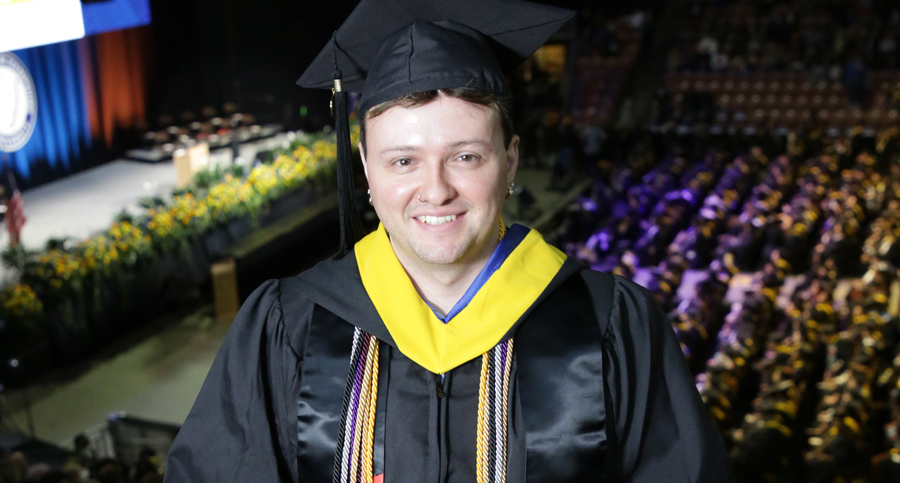
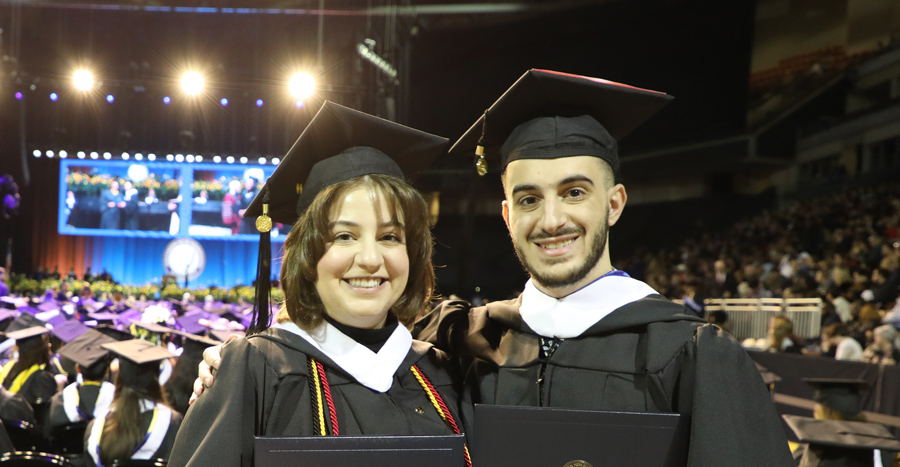
Student Voices:
Echoes of Gratitude
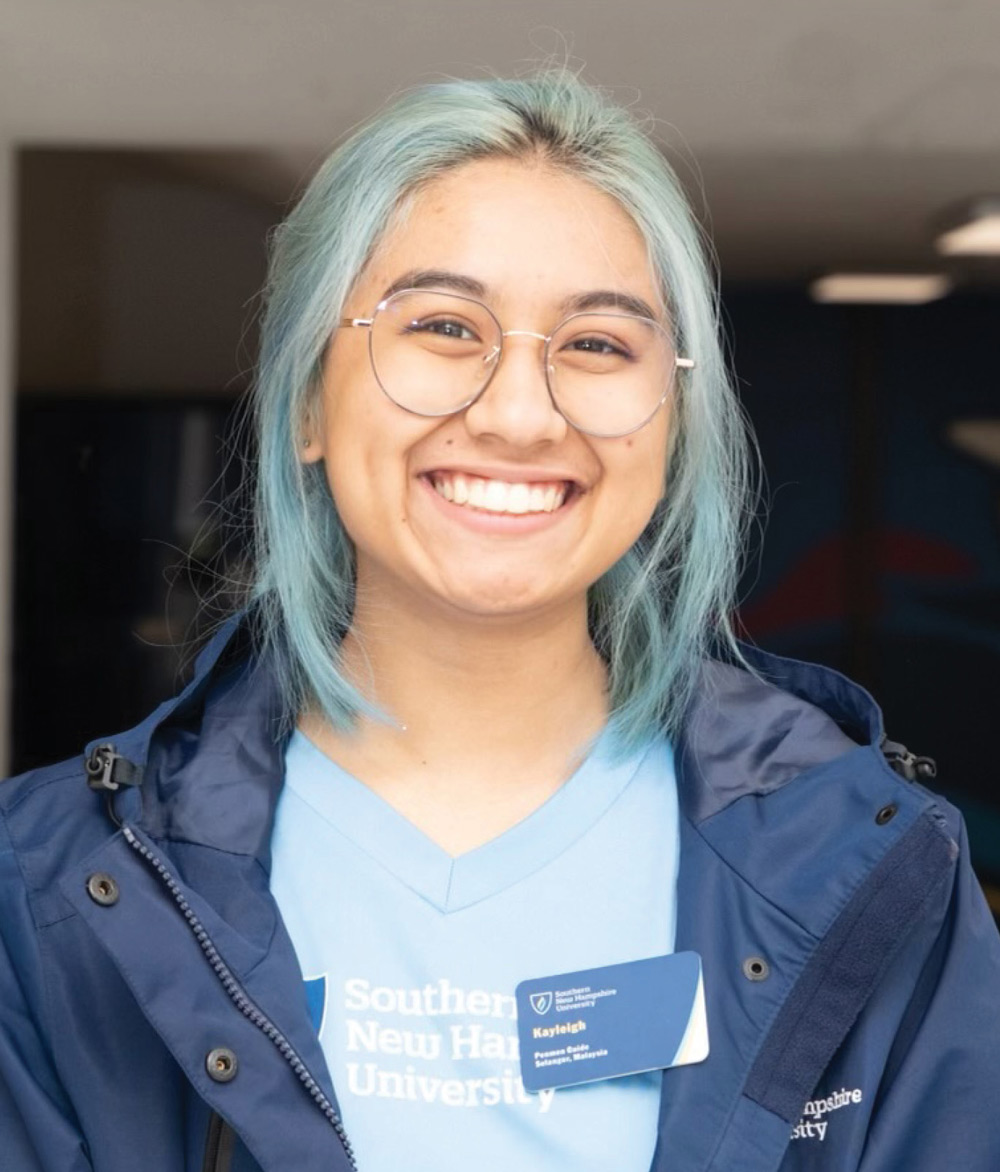

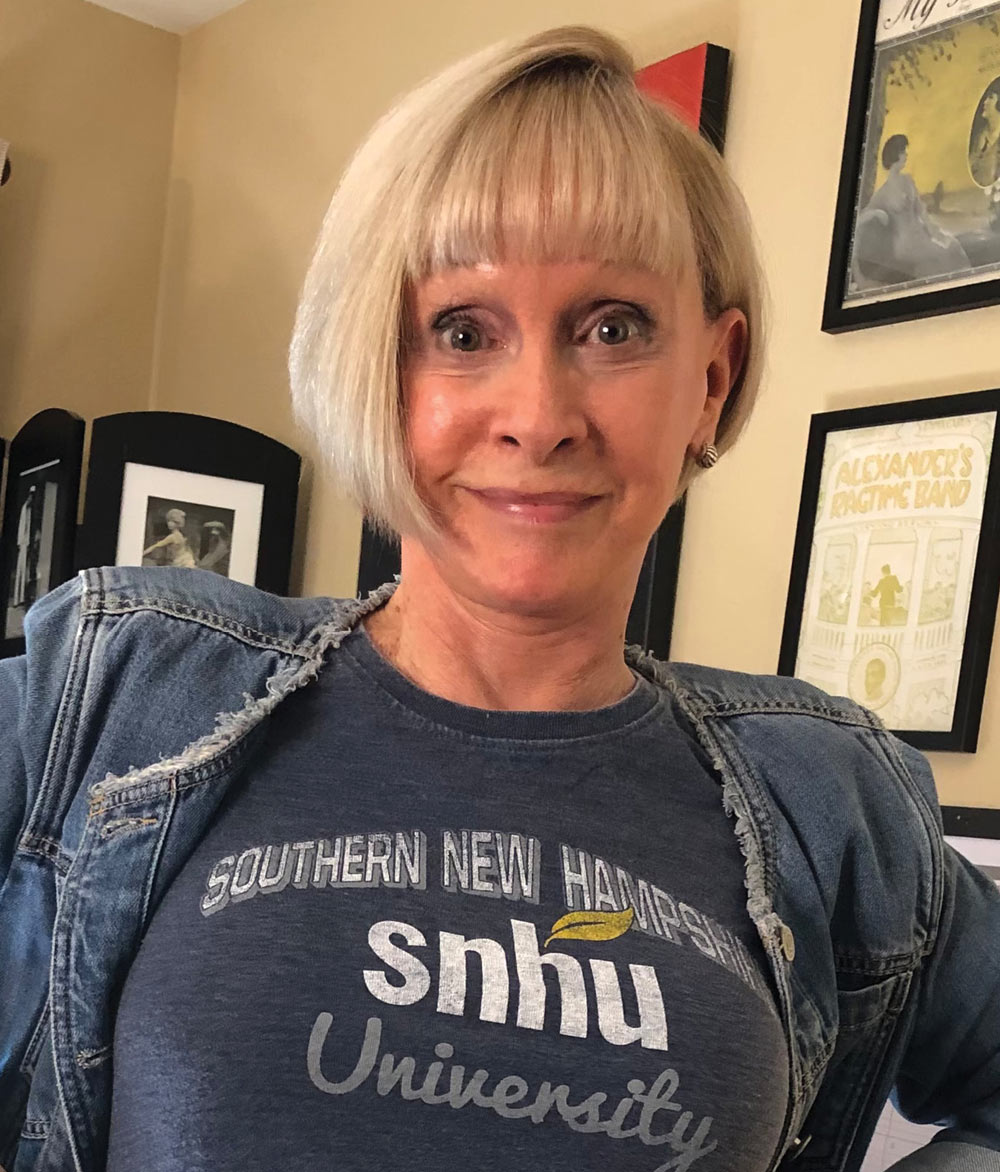
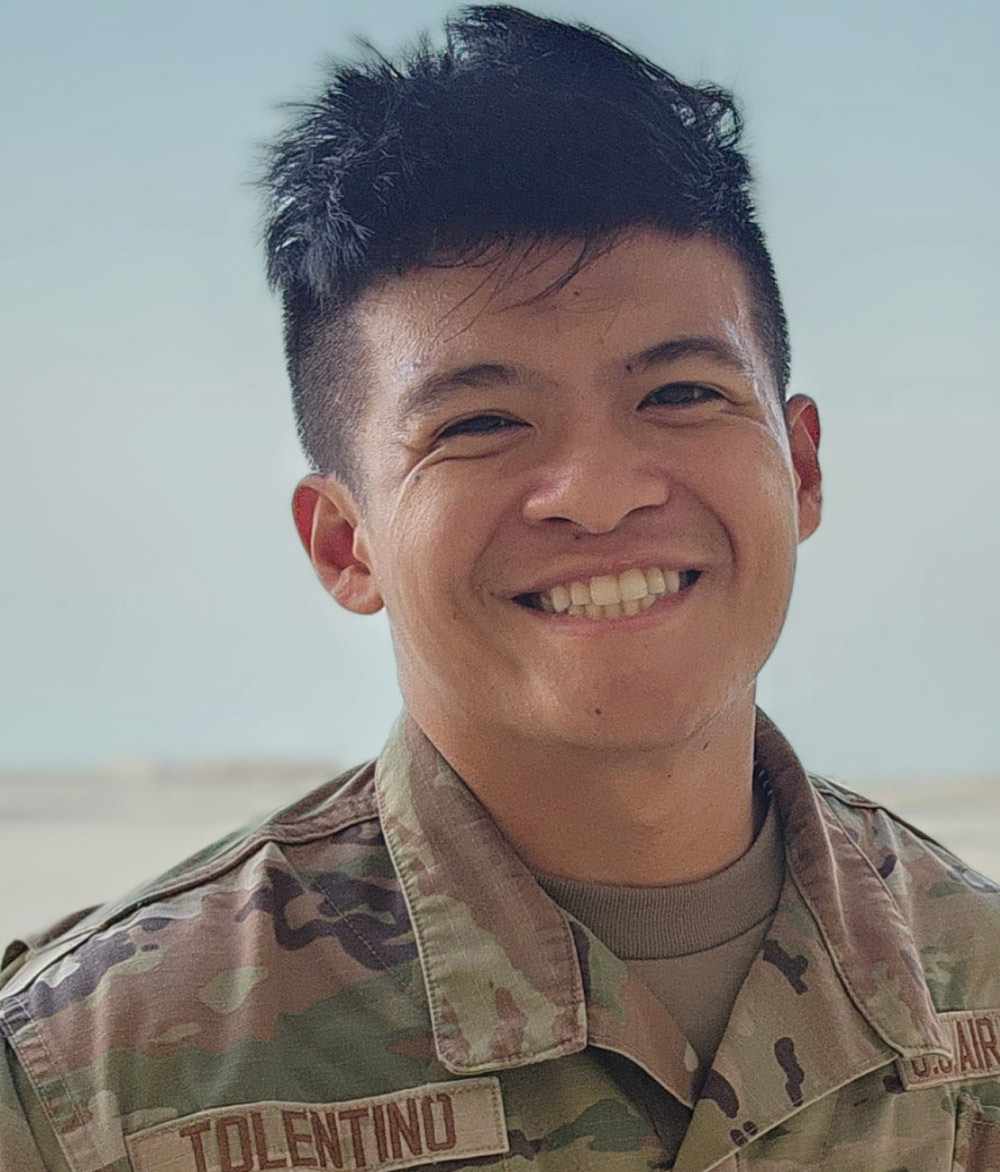
What is Sponsored Scholars?
Name your own Sponsored Scholarship and make a difference in the life of a deserving student, visit alumni.snhu.edu/scholars.

“I’m comfortable continuing to support SNHU because of the direction the university has taken to hold down the cost of education and make it so accessible with online learning and other programs. University leaders have been good stewards with my giving, and I very much believe in the importance of giving back.”
Gary St. Hilaire ’86
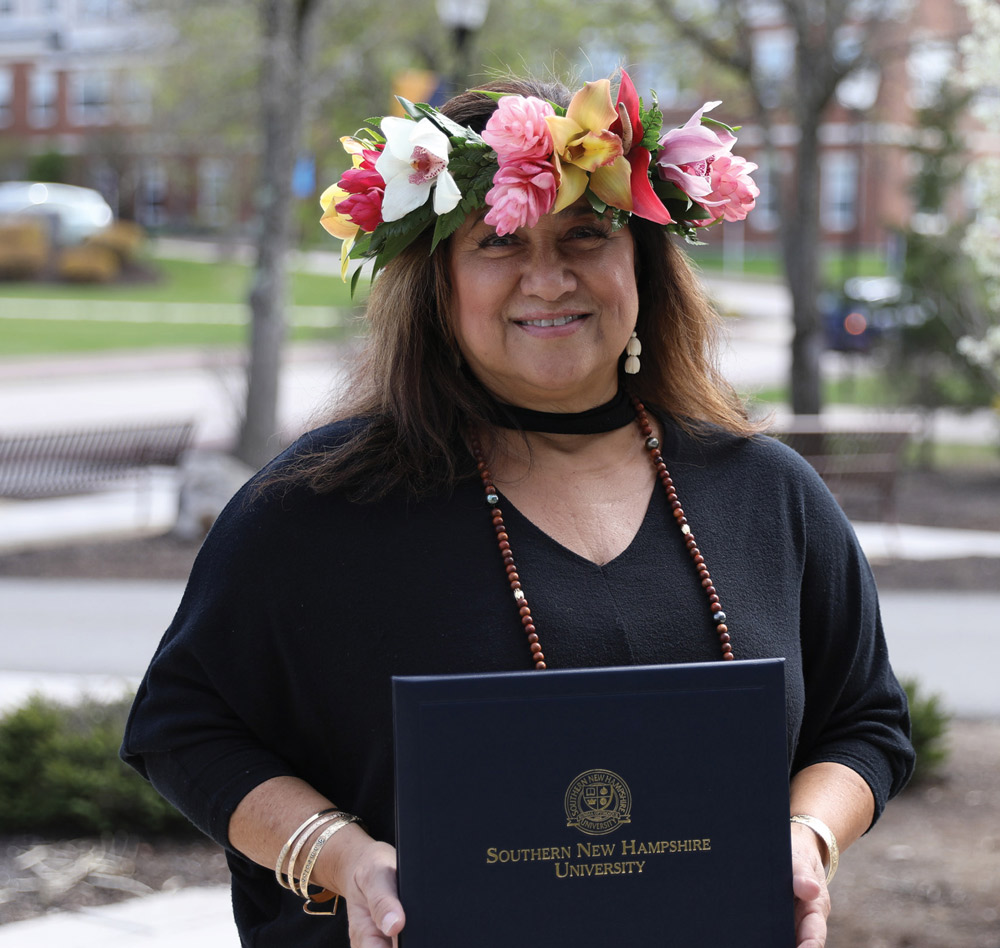
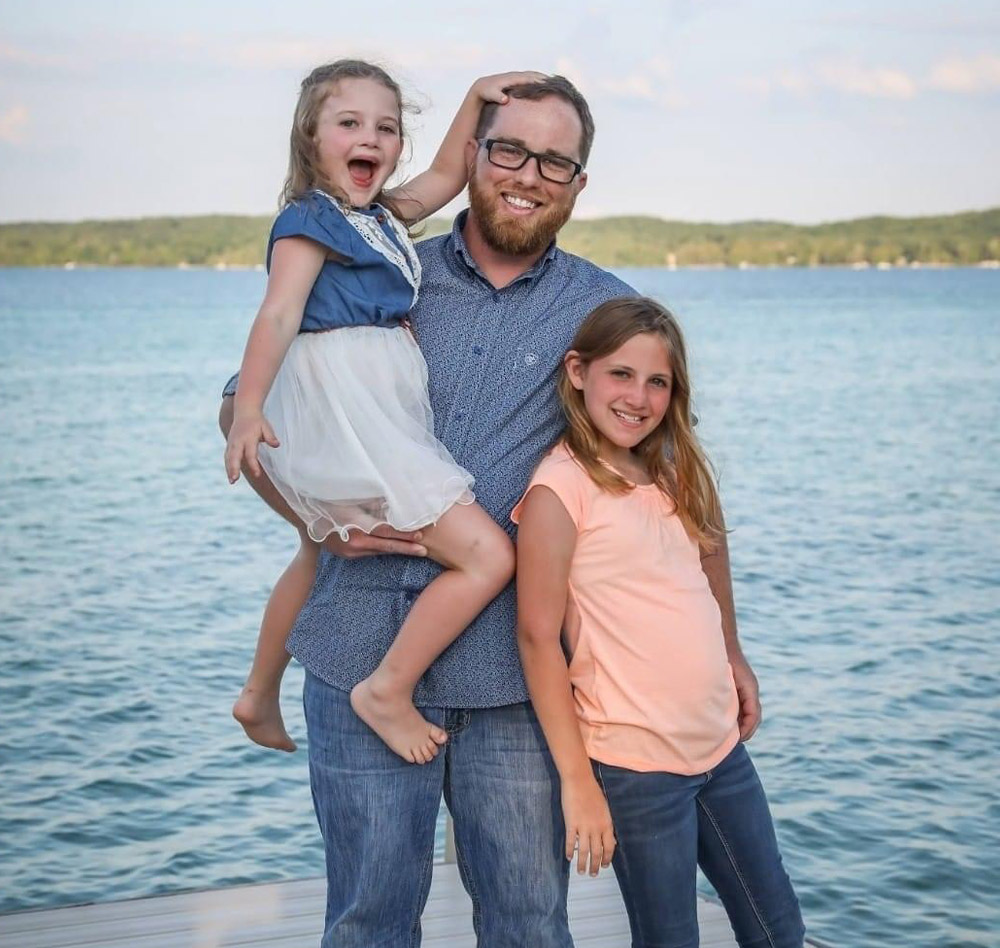
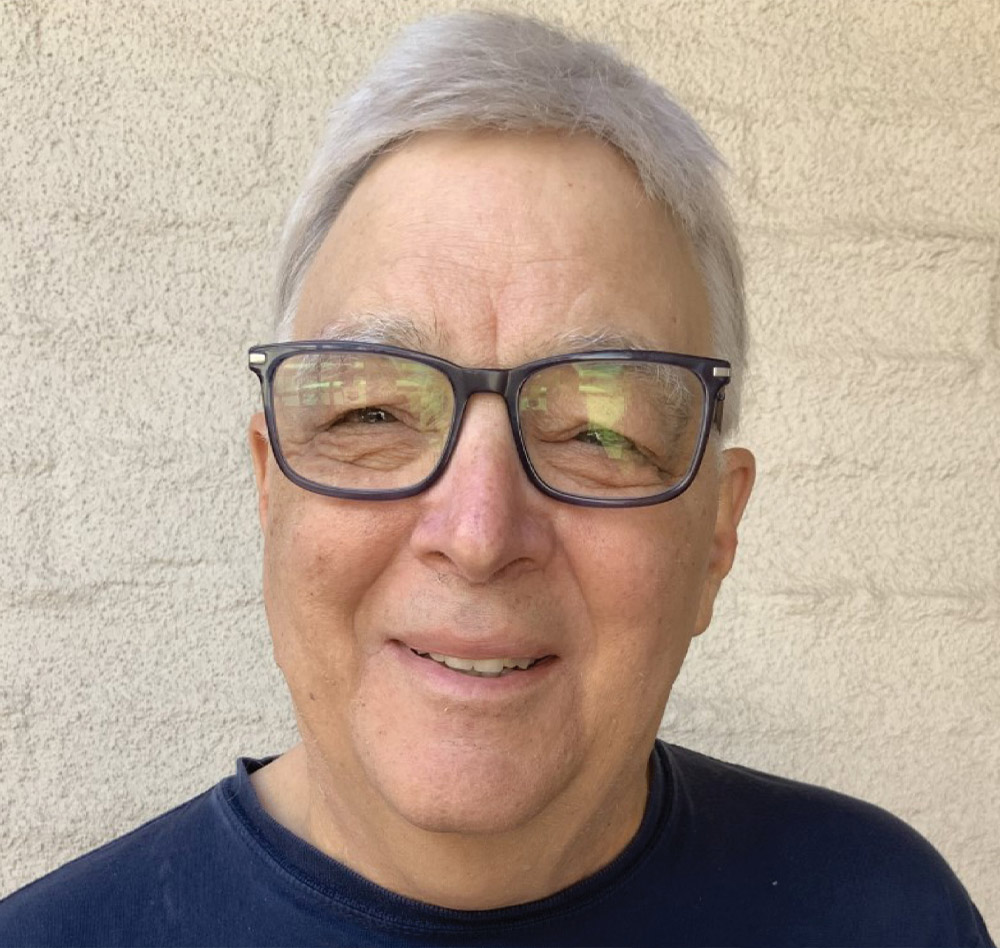
Hear from some of the students who have directly benefited from the Sponsored Scholars Program.
Linking Basic Needs to Persistence
Released in the fall of 2022, the first report in the series, Basic Needs Funding for College Students: What Southern New Hampshire University Learned During the Pandemic, detailed SNHU’s findings that students’ most identified basic needs in 2020 were housing, food, and transportation. SNHU received a total of $107 million in HEERF support and distributed the funding in three waves as emergency basic needs grants to over 50,000 students. While HEERF funds could be used for institutional needs, SNHU chose to pass all the aid directly to students. SNHU students who received support reported the emergency funding came just in time and helped them persist in their academic programs.
While the federal funding helped students stay enrolled during a national crisis, many of the learners SNHU serves continue to have similar needs as we have emerged from the pandemic.
The latest paper released in October 2023, Does Basic Needs Funding Improve Persistence Among College Students? Findings on How HEERF Dollars Impacted Student Persistence at SNHU, examined whether HEERF funding had a significant positive impact on learner persistence, and found SNHU students who received grants during the second round were 15.5% more likely to still be enrolled eight months later than those who didn’t get emergency funding. While the difference decreased following the third round of funding, recipients were still 8.6% more likely to be enrolled.
As a result of these findings, SNHU approved funding to pilot an emergency grant program for learners in need. Findings from the pilot conducted during the 2023 spring and summer terms will be used to inform future projects related to this topic at SNHU. CHEPP’s advocacy around improving basic needs funding for learners continues through additional research and educating policymakers and the public on the issue’s link to student persistence.
CHEPP also recently launched a new 50-state map outlining SNHU’s “new traditional” learners across the country. Higher education learners look very different than they did decades ago, with fewer traditional-aged high school graduates and more older adults balancing work and family with their education. The map will be a helpful resource for the CHEPP team, policymakers, the media, partners, and more to understand the complexities facing adult learners today and how we can help more students succeed.
To learn more about the work being done by The Center for Higher Education Policy and Practice, visit chepp.org.
Connecting Community Through Outdoor Classrooms
Connecting Community Through Outdoor Classrooms
In 2023, the Office of Sustainability launched an initiative to build out a network of outdoor classrooms at three Manchester public schools: Southside and Hillside Middle Schools and Webster Elementary School. Made possible by a grant from the Bosch Community Fund, the “EcoSTEM Outdoor Classroom Network” links Manchester students to the SNHU Arboretum. In addition to providing much-needed outdoor learning spaces, the classrooms include environmental sensors and monitors, allowing students to take ownership of their school’s environment and generate meaningful learning opportunities.
“When we spoke with the principals, they were absolutely thrilled that we were bringing in these resources for their schools,” said Pamela Beckvagni, assistant director of sustainability programs at SNHU. “This is a wonderful opportunity for students to experience the outdoors, experience nature and learn about the environment.”
On October 25, students at Southside Middle and Webster Elementary schools rolled up their sleeves alongside Office of Sustainability staff and student worker “Eco Reps” and other SNHU employees utilizing their Volunteer Time Off (VTO) to install materials needed for the outdoor classrooms, including picnic tables, chalkboards, and raised flower beds.
“One of the functions within the community impact team is eliminating barriers to education,” said Nicole Cate, community impact program manager at SNHU. “Partnering with the Manchester community specifically gives us a ton of pride, and these kinds of projects allow children to have a new experience and can further their education in different ways, not just inside the classroom, but outside the classroom.”
Roselyn Ramos is a senior studying environmental science on campus and one of several Eco Reps working in the SNHU Office of Sustainability to assist with the outdoor classroom installation at Southside Middle School. The project was an opportunity for her to reflect on her own grade school experiences and bring her passion for environmental studies to younger students.
“We had an outdoor classroom at my elementary school, but it was hard when we transitioned to middle school and we didn’t get as much time outside,” Ramos said. “The fact that we’re here at a middle school and giving them that opportunity to be outside more is really great.”
“A project like this is really unique and a great opportunity for students to get outside the classroom and do some experiential learning,” Beckvagni said. “When I was growing up, I didn’t get that opportunity and I think this is wonderful for some of those students who need to move around, get some fresh air and see the outdoors.”
Weather stations were also installed at the locations, allowing students across the community to draw on data from any site, collaborate with peers, and carry authentic learning and problem solving into high school and college, strengthening the local STEM pipeline.
For Ramos, data collection is part of her everyday work as an SNHU Eco Rep. She says it’s just some of the experience she’s been able to gather to prepare her for a future career doing similar work.
“We also get skills in public speaking,” Ramos said. “As an Eco Rep, I’ve done a lot of public speaking trying to educate others about waste centralization.”
Unforgettable Legacies
2023 SNHU Alumni Awards
SNHU Alumni Hall of Fame Award

Emerging Leader Award
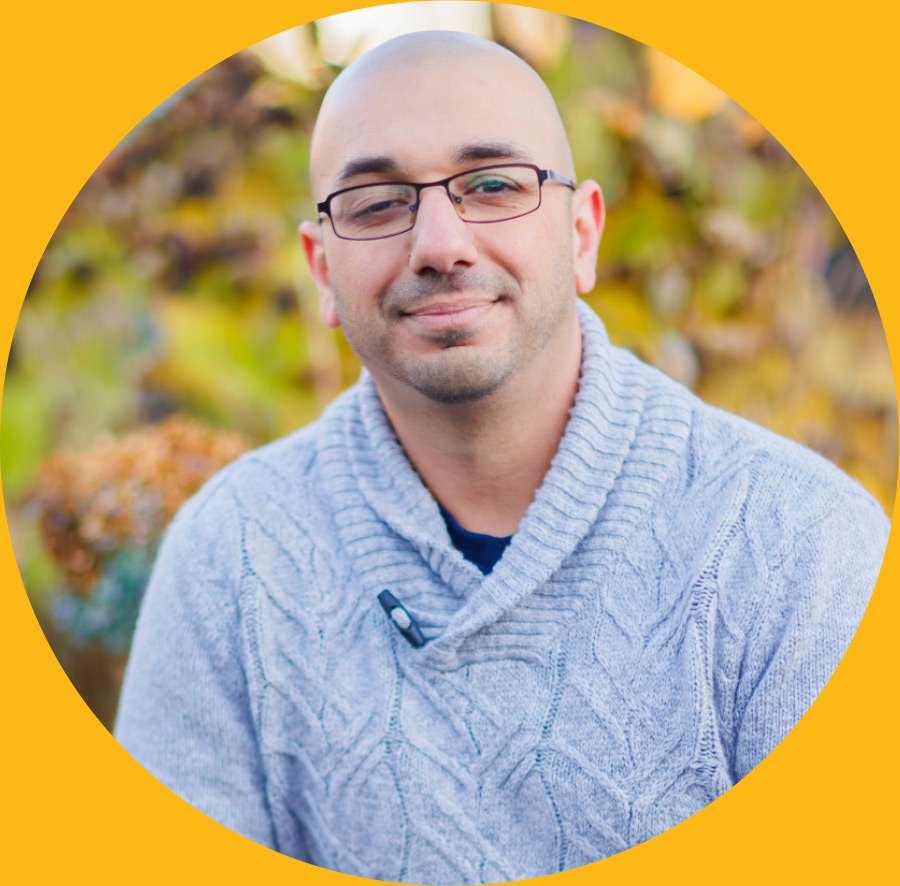
SNHU Distinguished Alumni Service Award
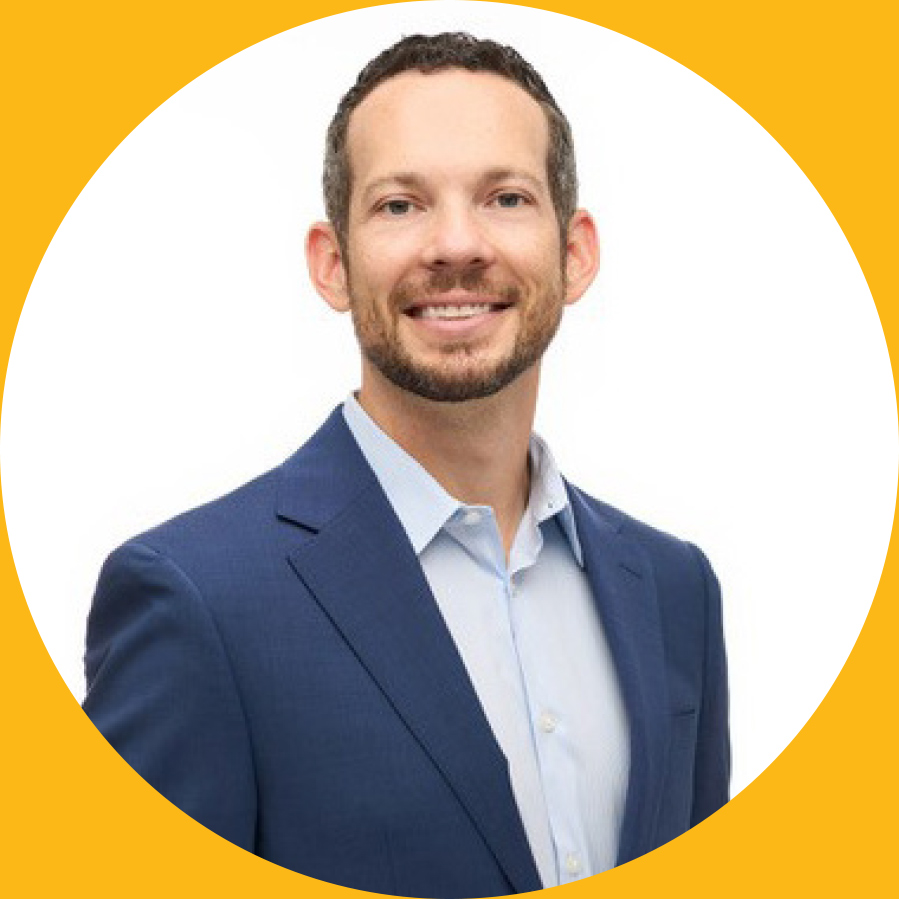

Athletic Hall of Fame, Class of 2023
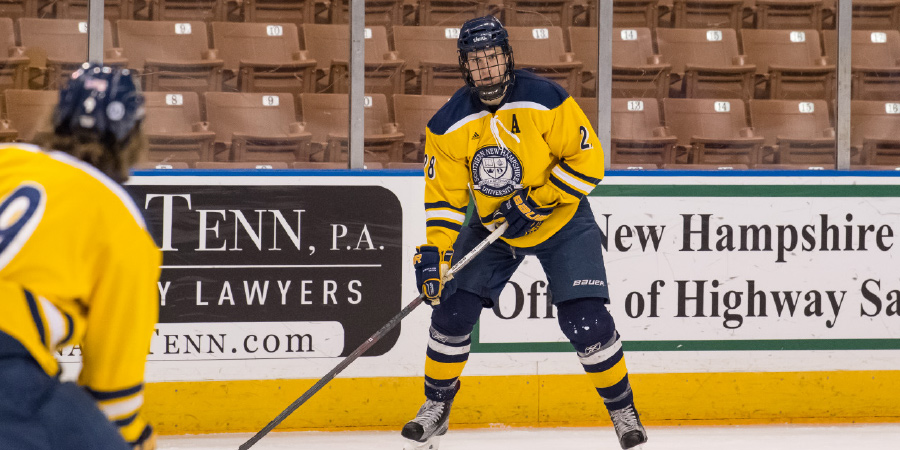
Men’s Hockey Team 2012-2017
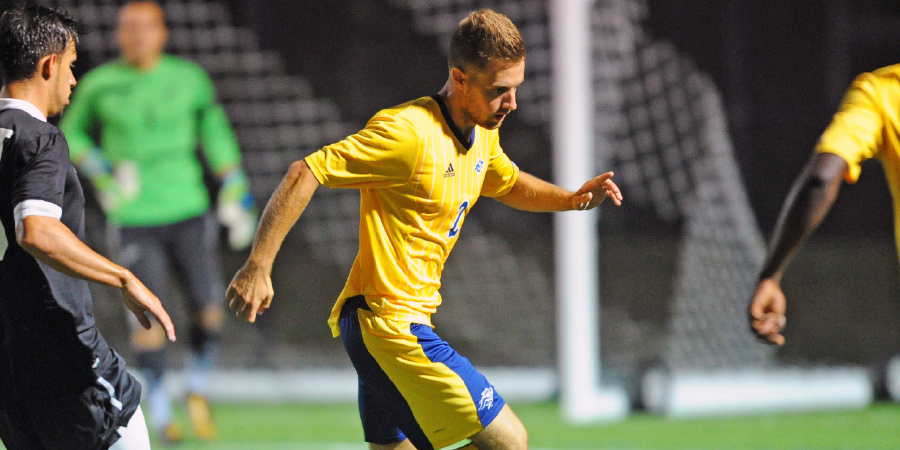
Men’s Soccer Team 2012-2015
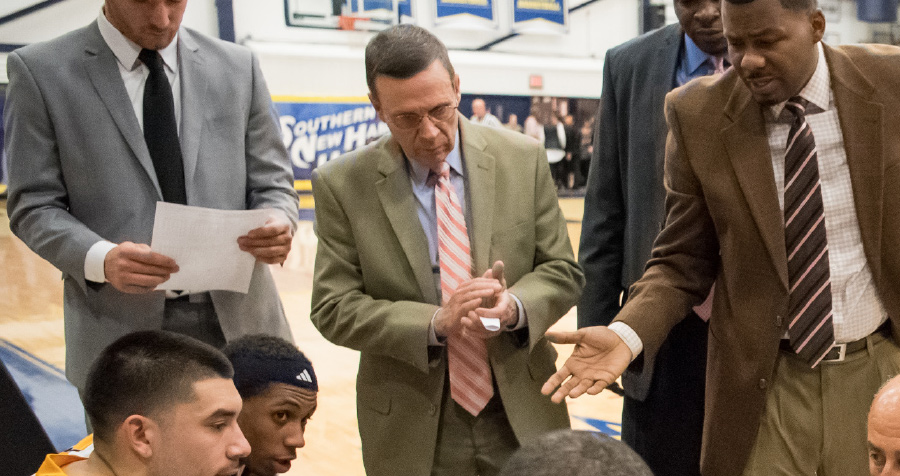
Men’s Basketball Assistant Coach 1985-2018
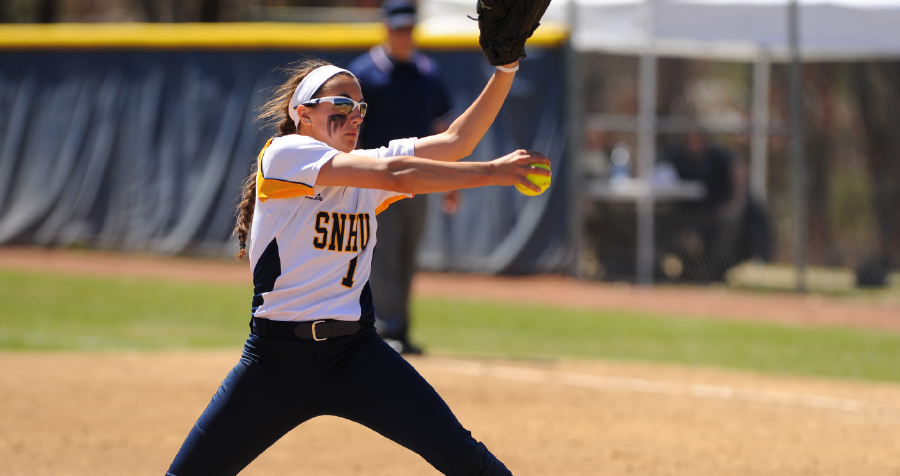
Softball Team 2012-2015
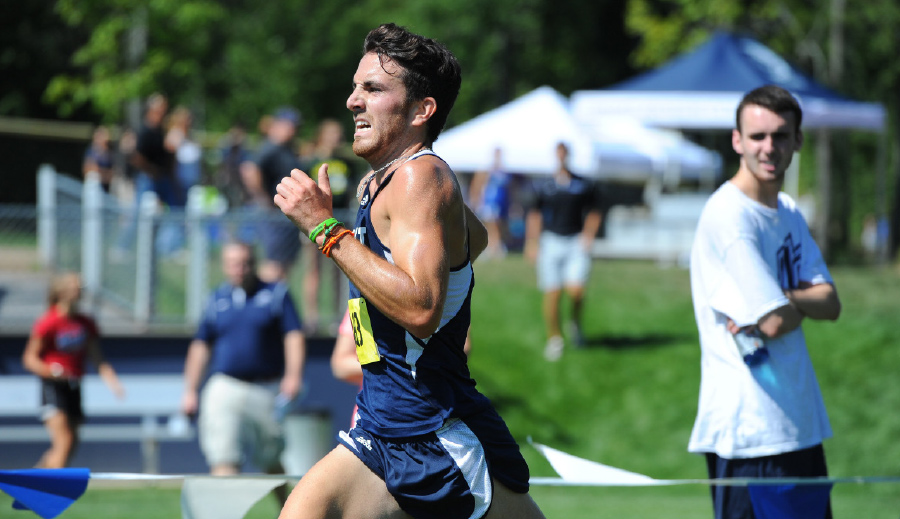
Men’s Cross Country 2015-2016

Baseball Team 2011-2013
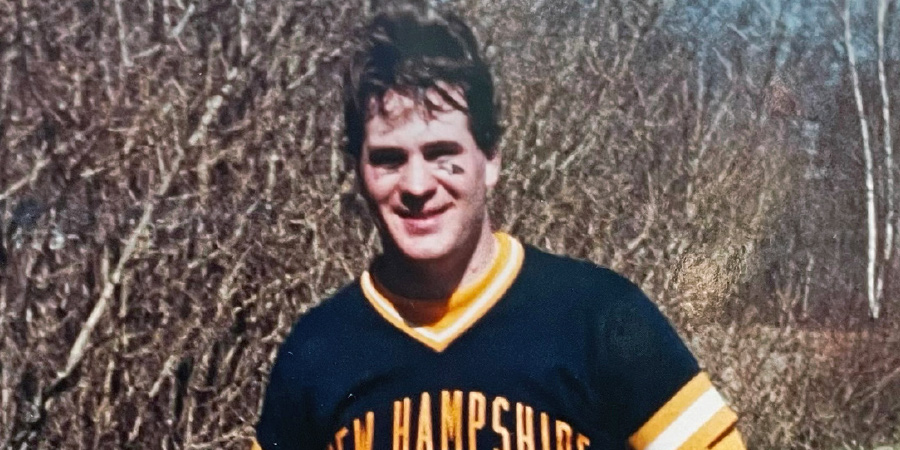
Baseball Team 1985-1988
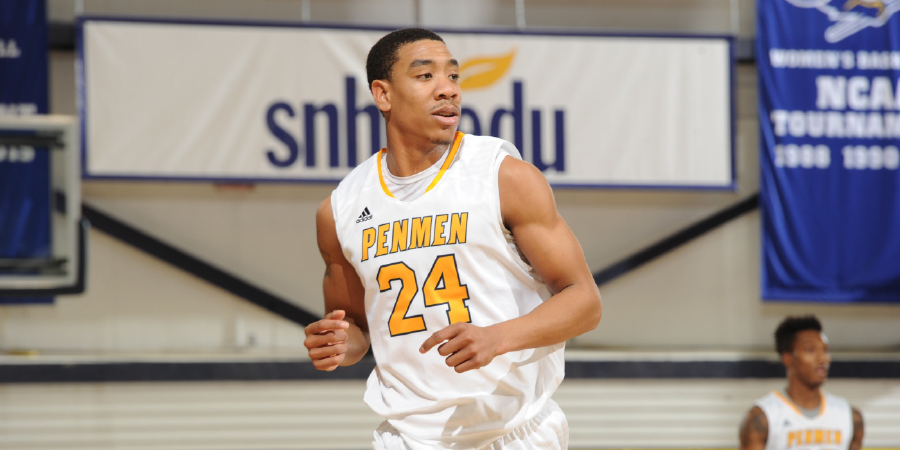
Men’s Basketball Team 2012-2016
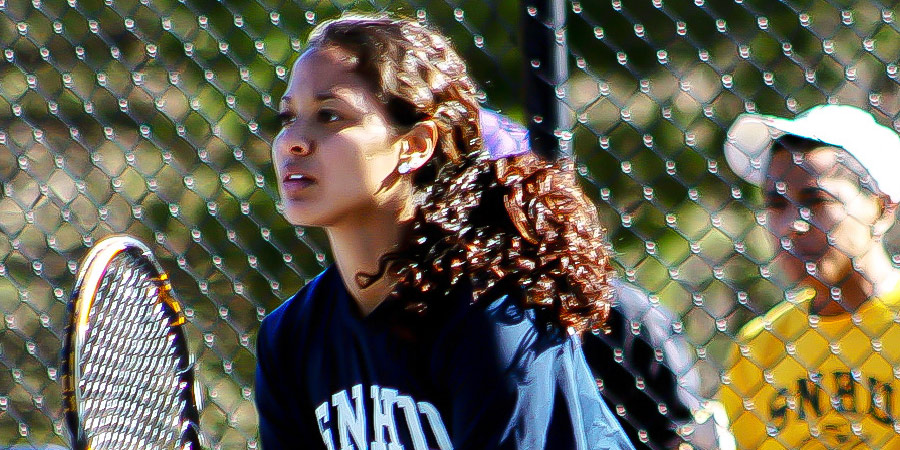
Women’s Tennis Team 2009-2013
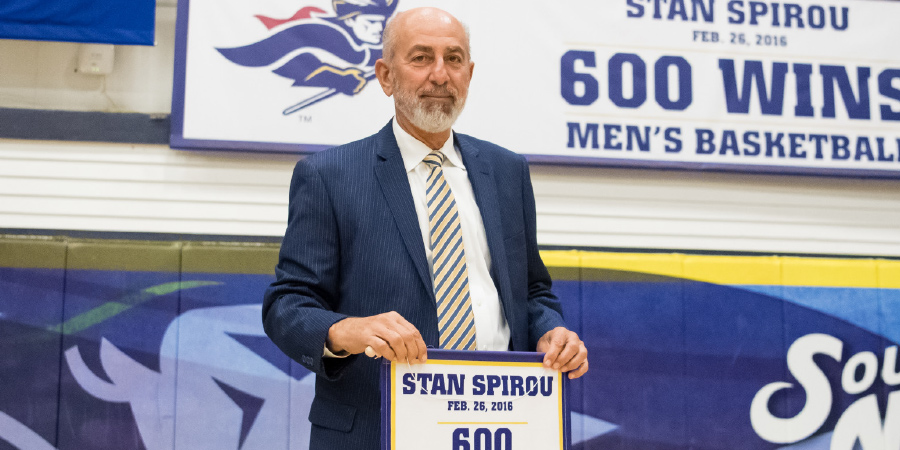
Men’s Basketball Head Coach 1985-2018

Men’s Golf Team 2013-2016
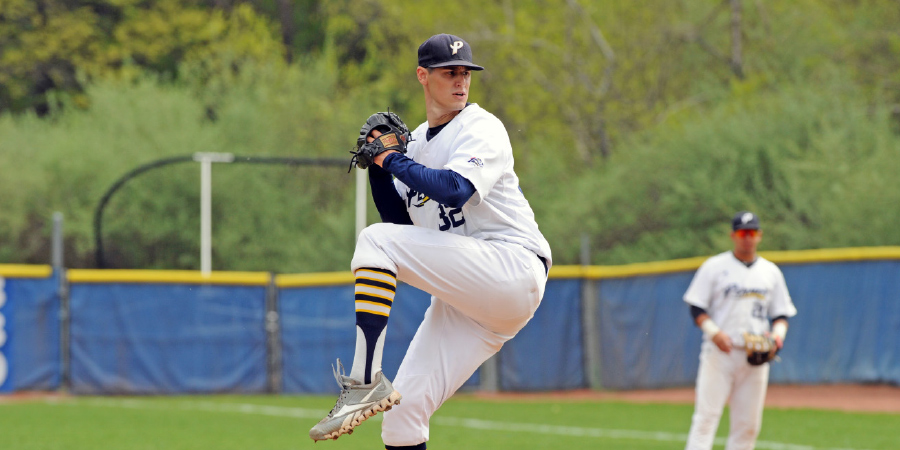
Baseball Team 2010-2014
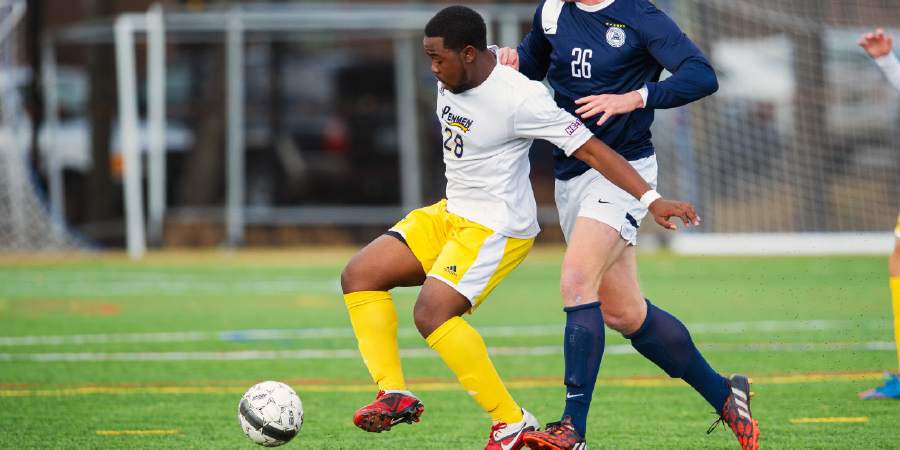
Men’s Soccer Team 2012-2015
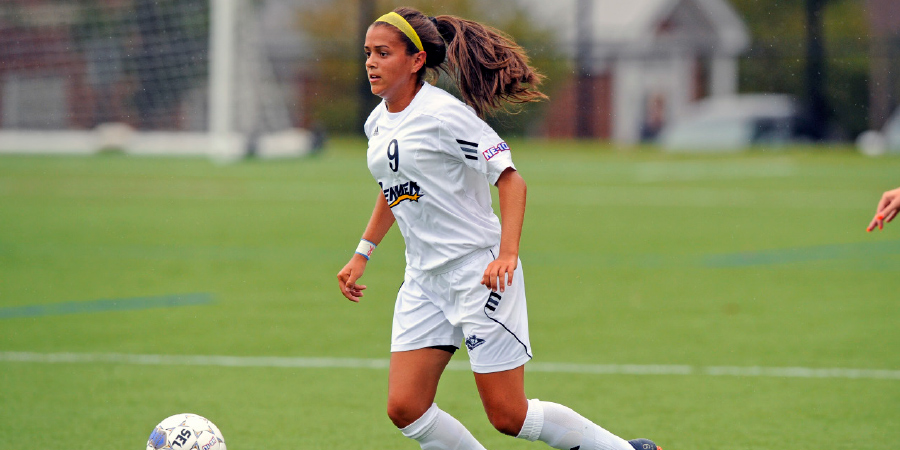
Women’s Soccer Team 2008-2011
In Photos: SNHU CAMPUS
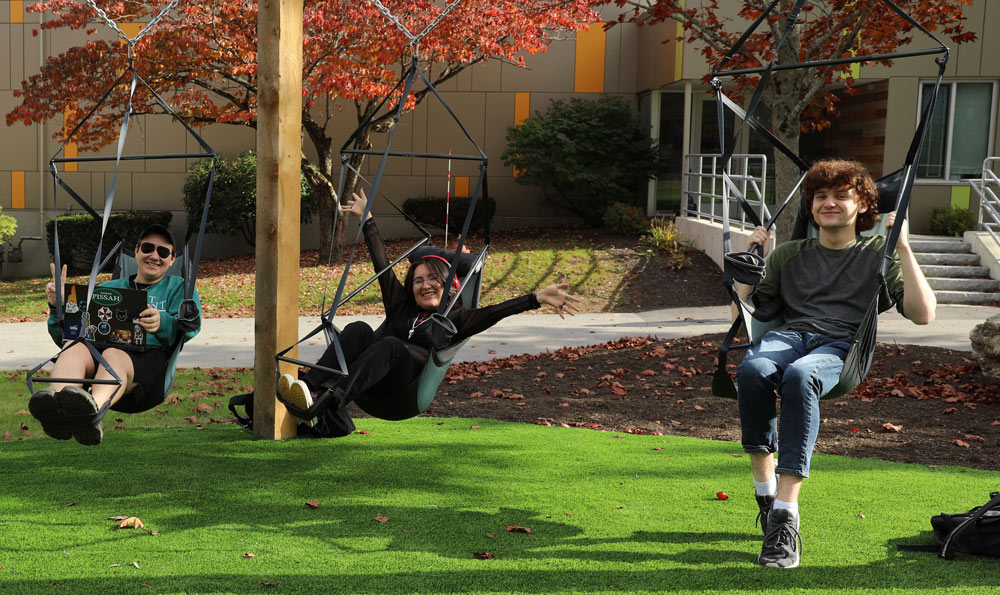
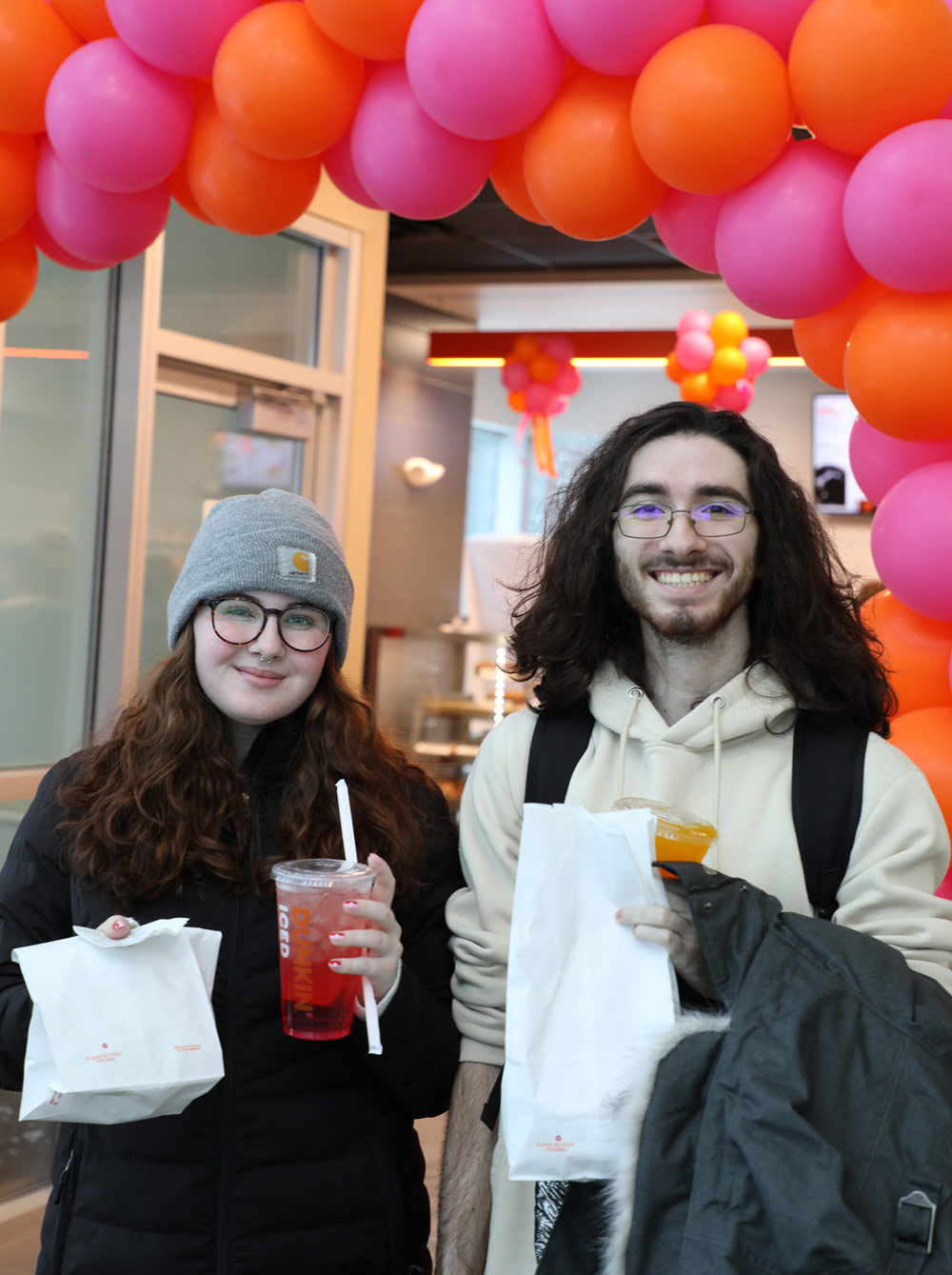
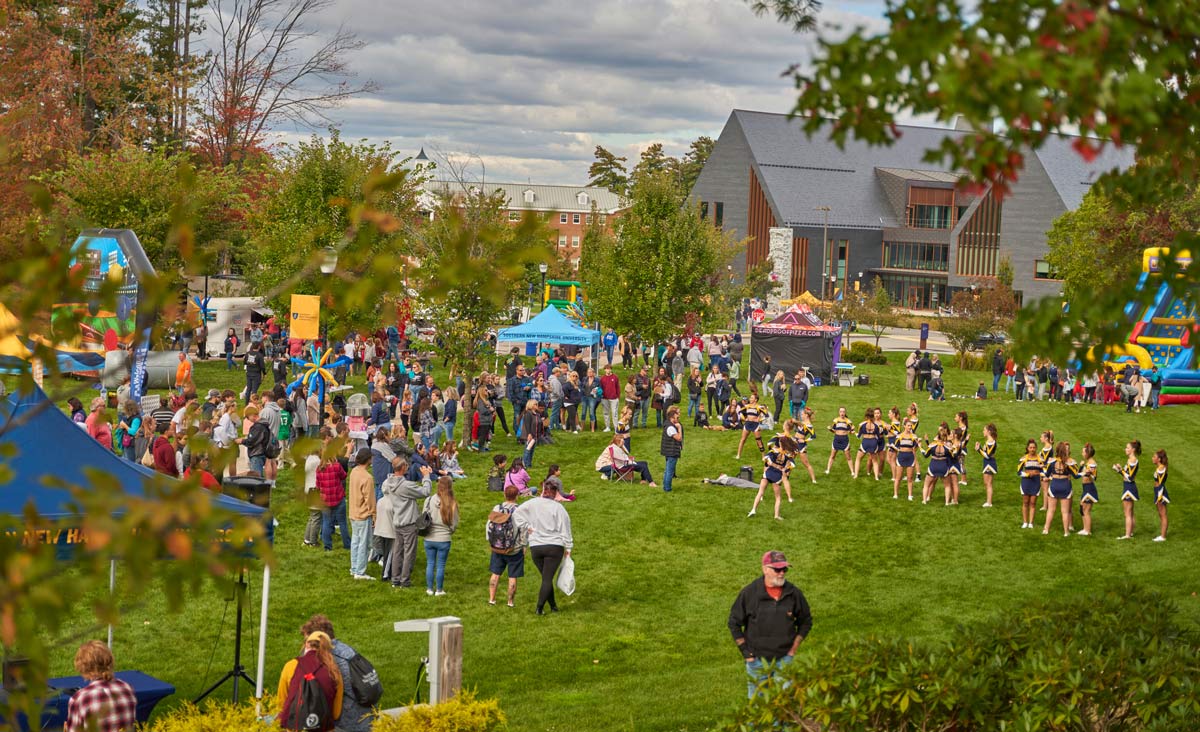
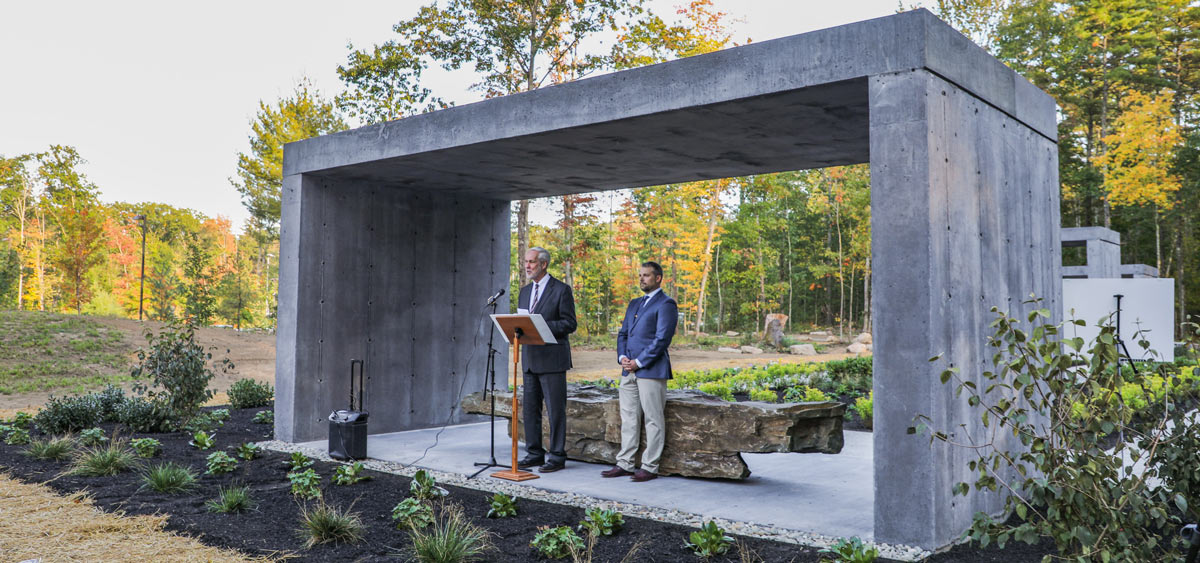
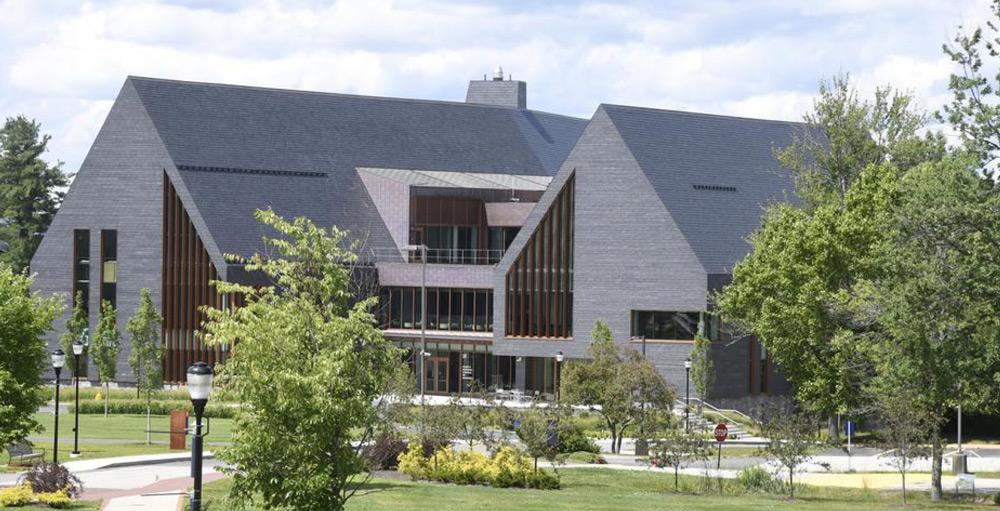
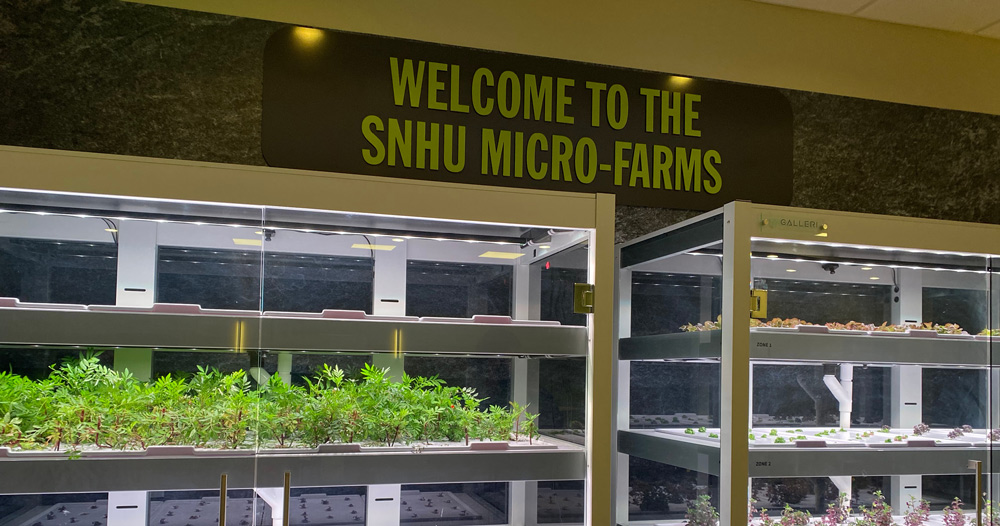
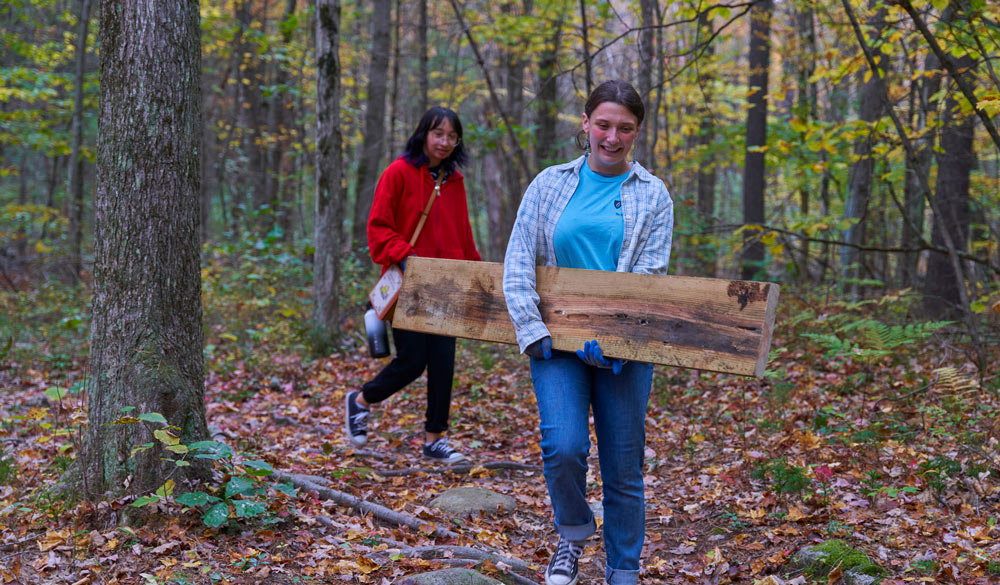
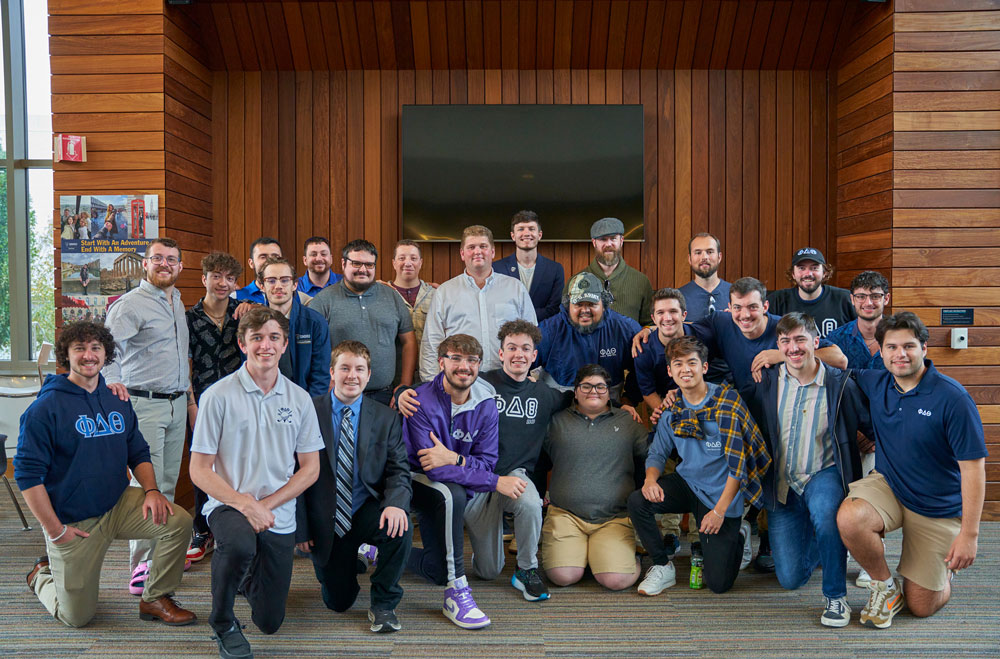
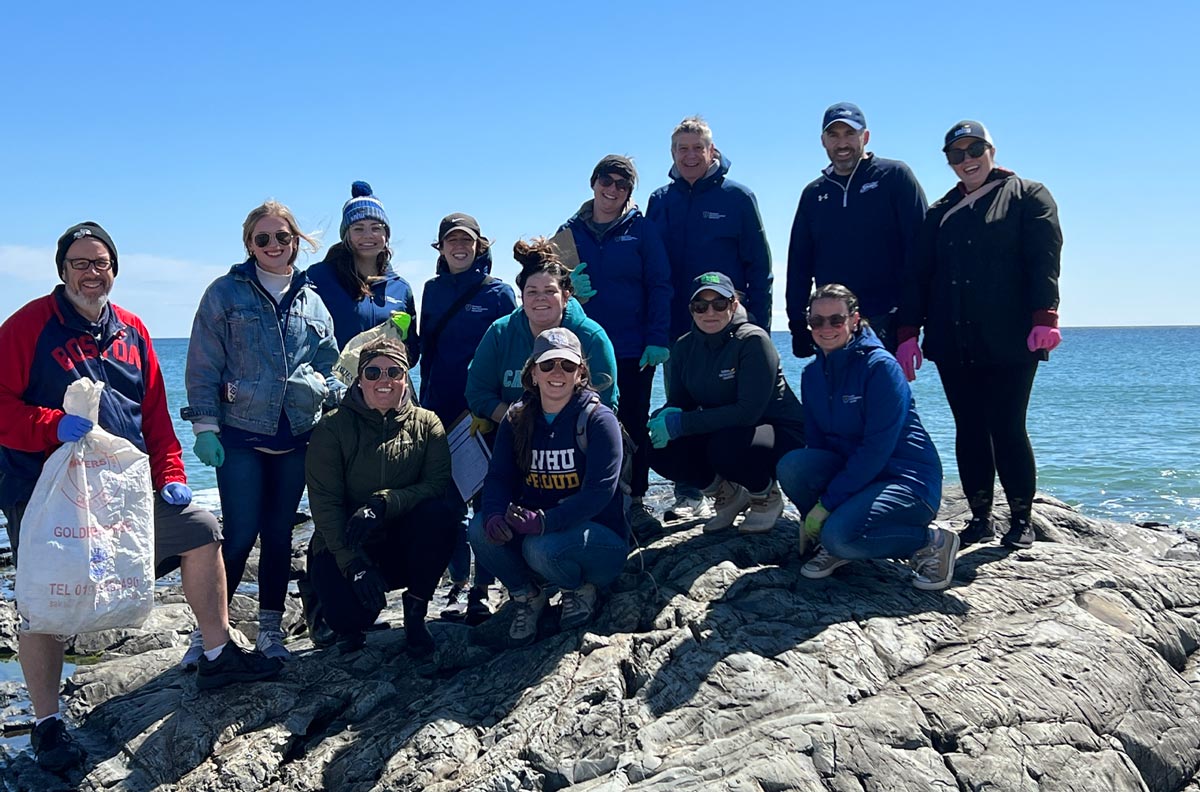
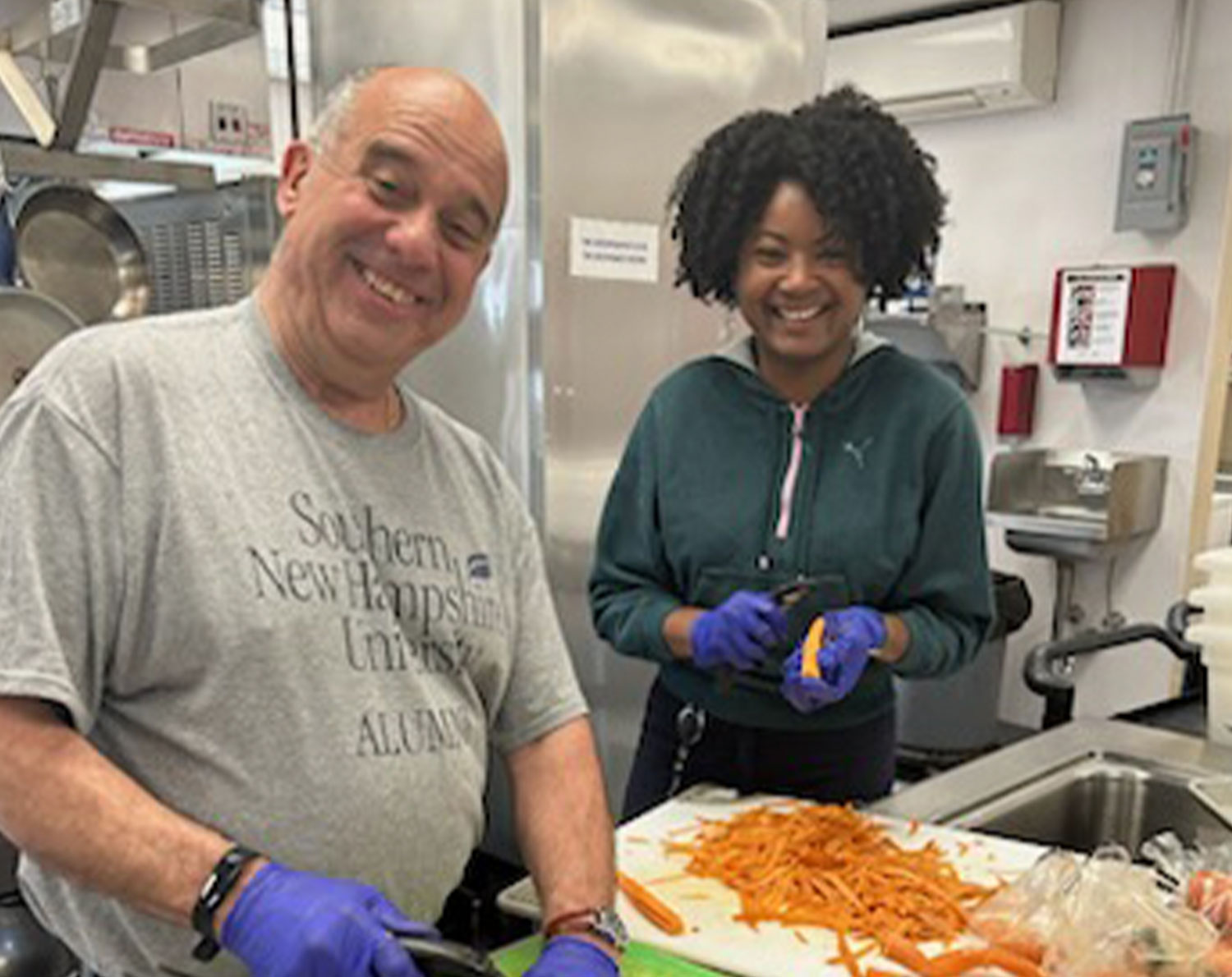
SNHU Global Days
SNHU Global Days of Service (GDS) is a two-month-long community service event, where alumni, students, faculty, and staff come together from across the globe to strengthen our communities.
Interested in leading a project in your area for an organization you love? Learn more about serving as a site leader at alumni.snhu.edu/gds-lead.
We’re always adding projects and opportunities. To learn more, visit alumni.snhu.edu/serve.
